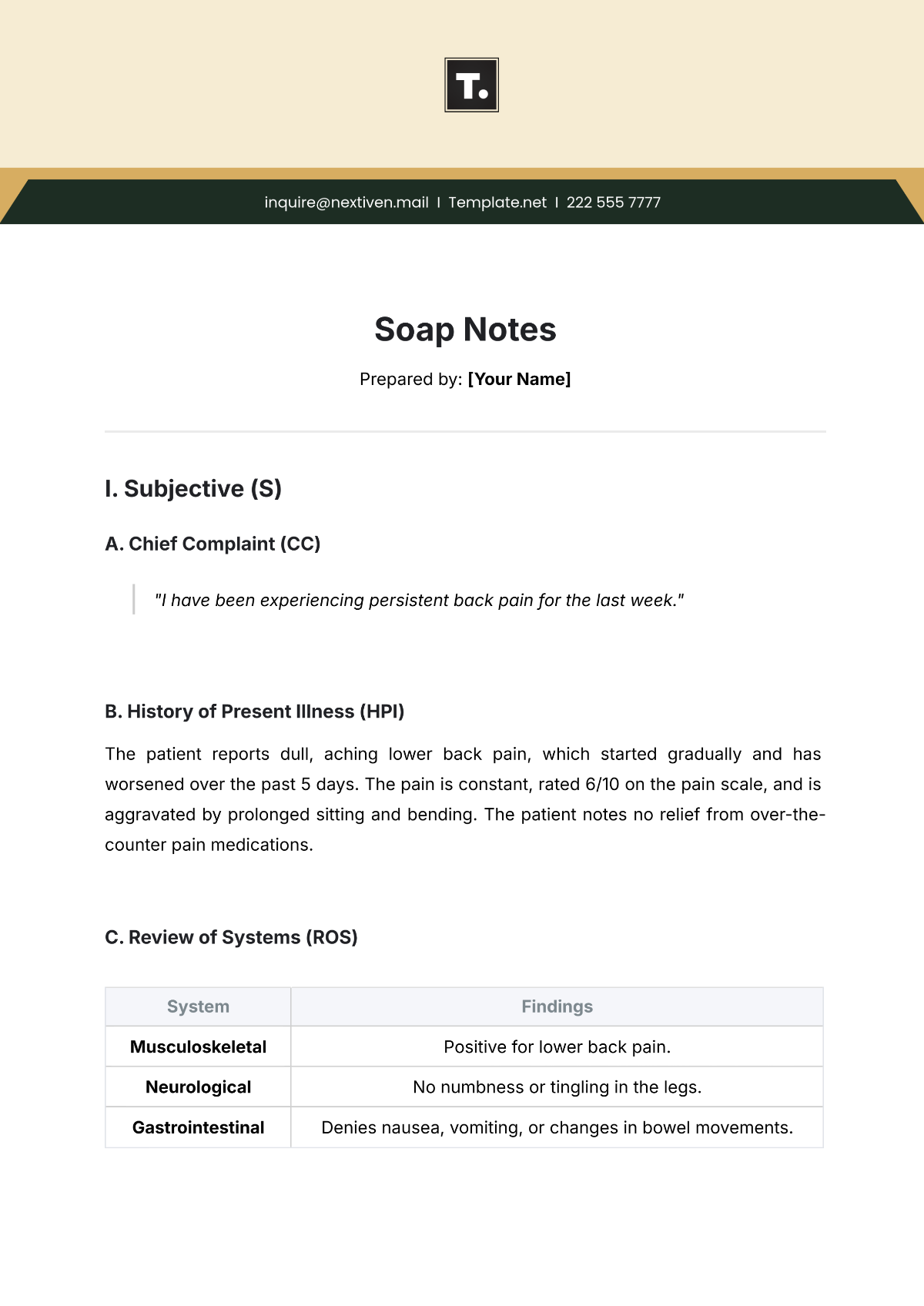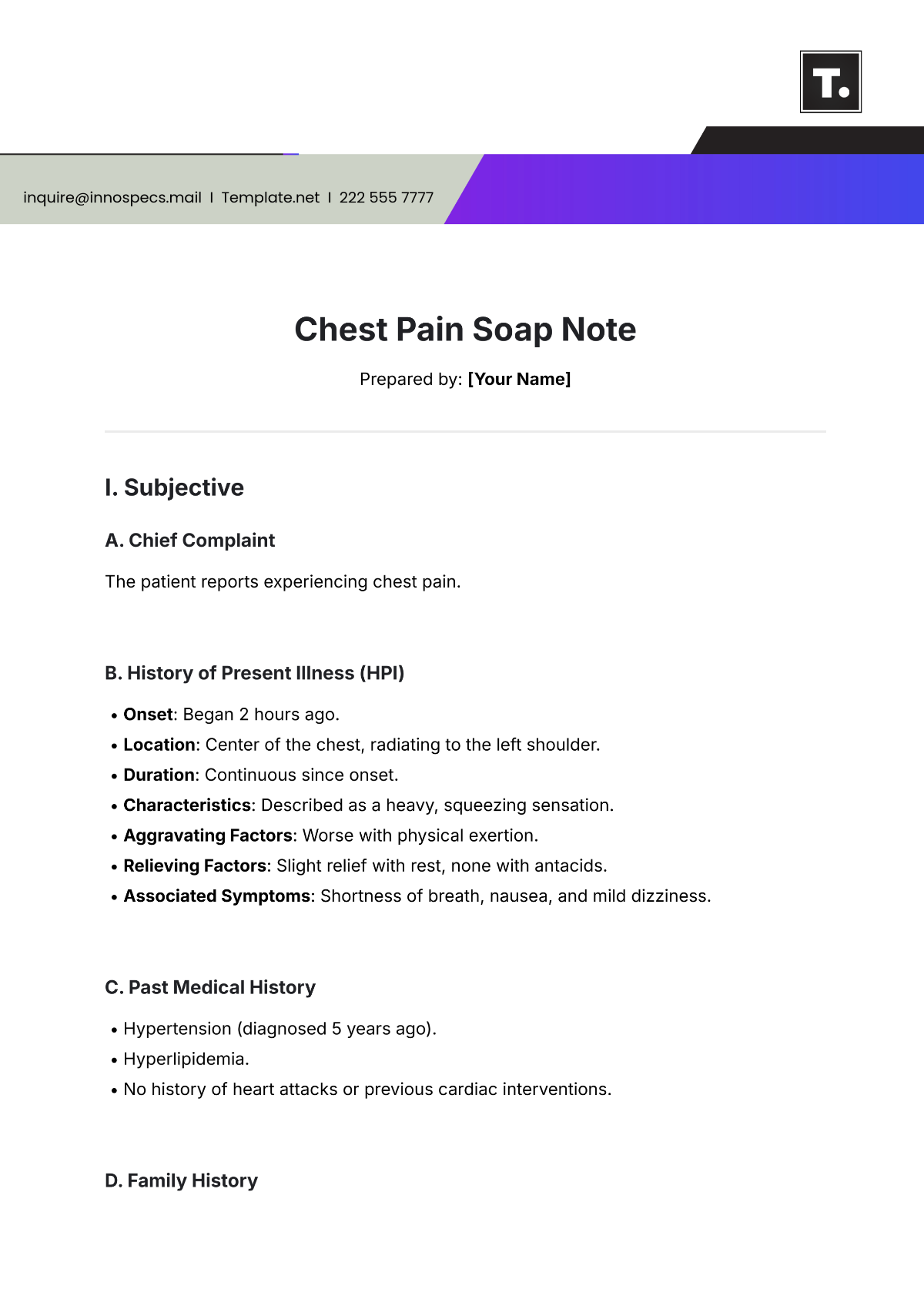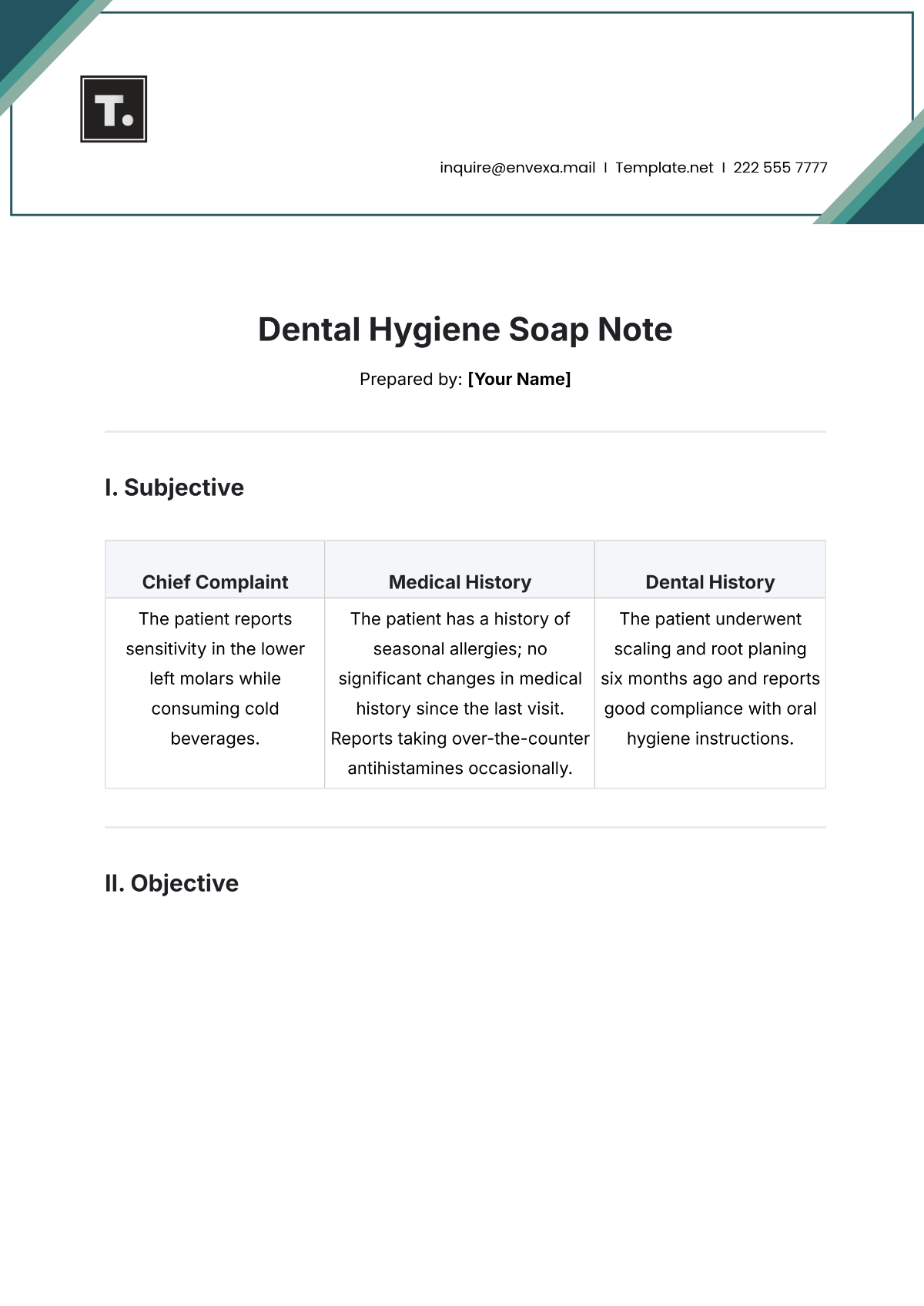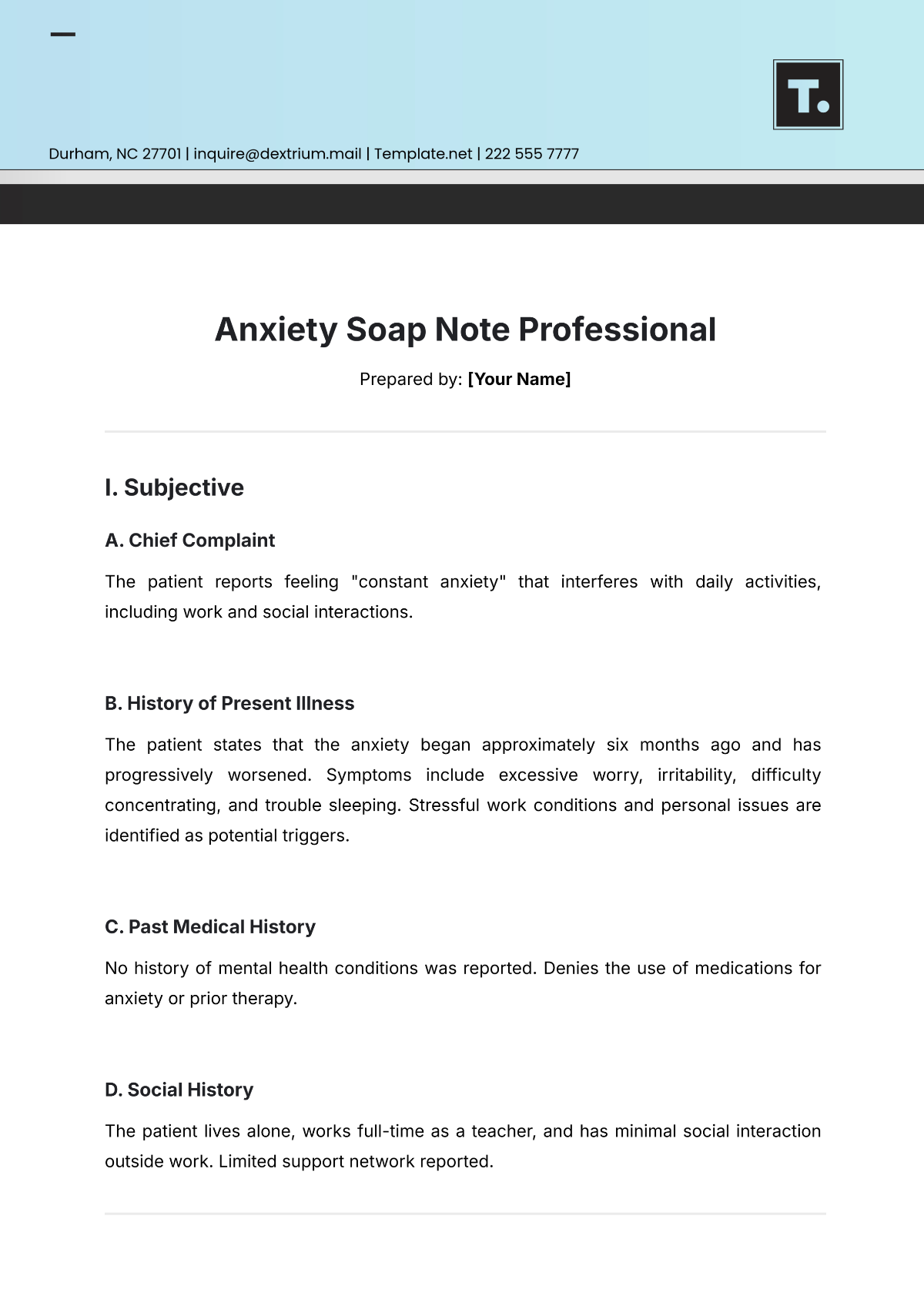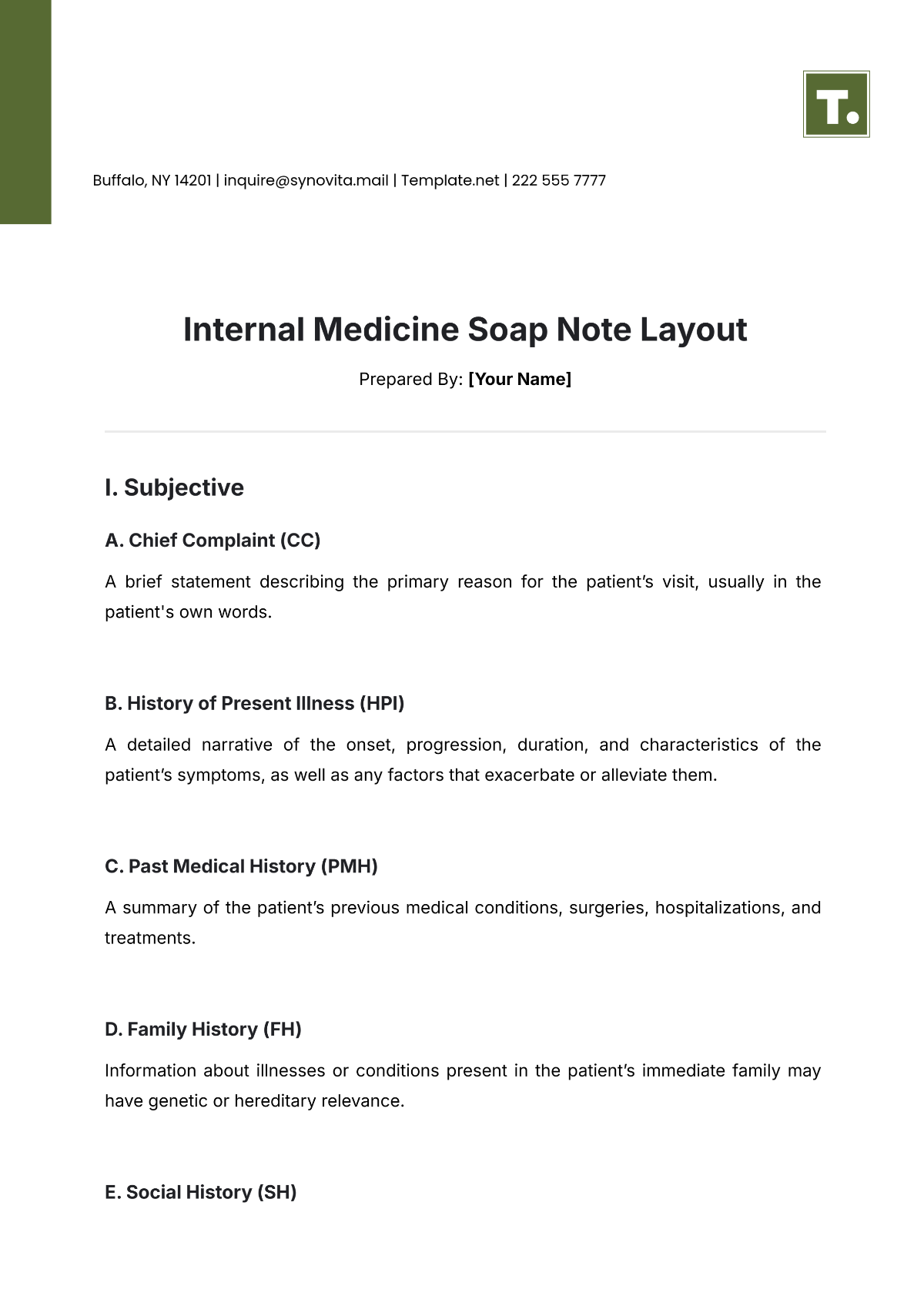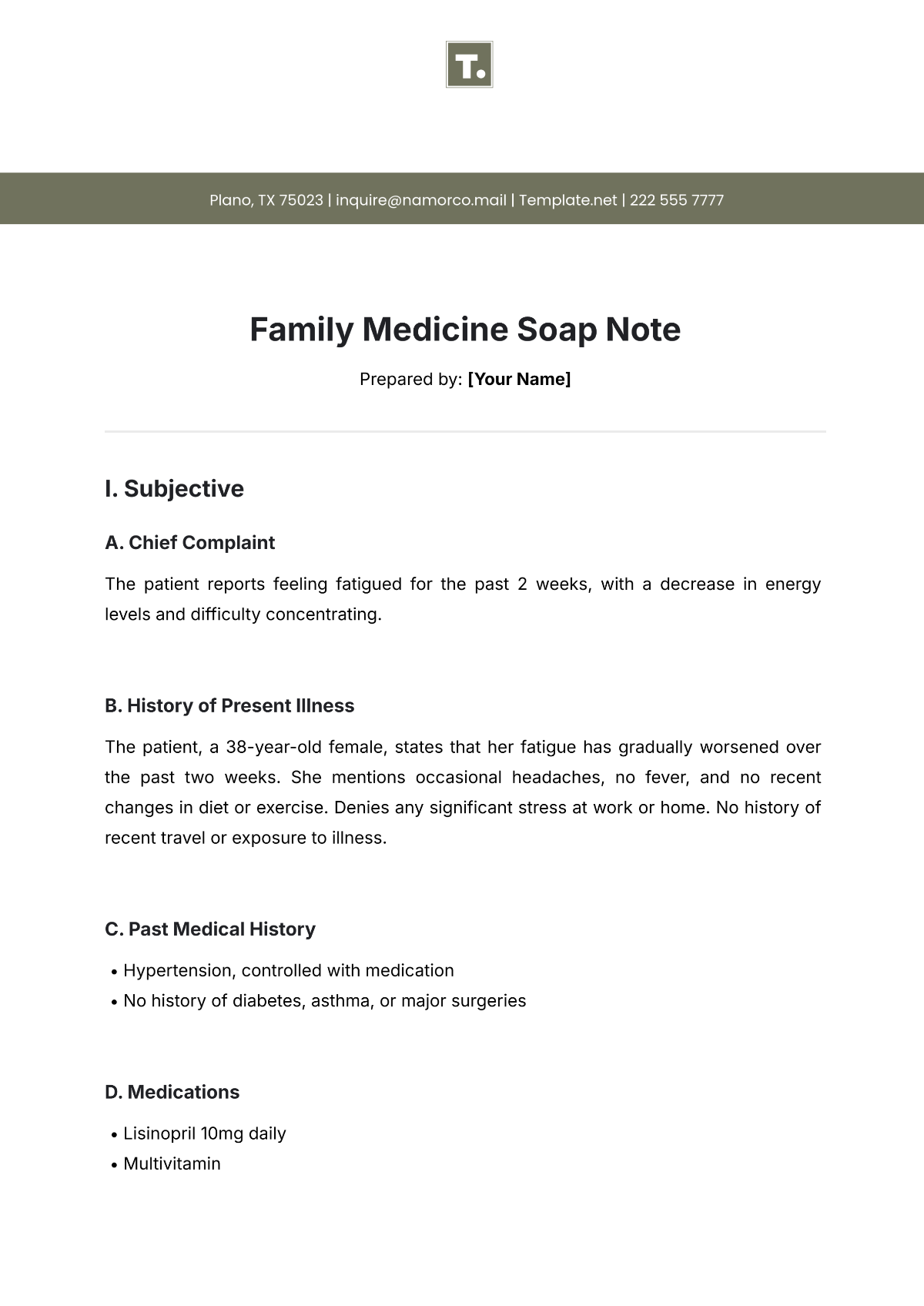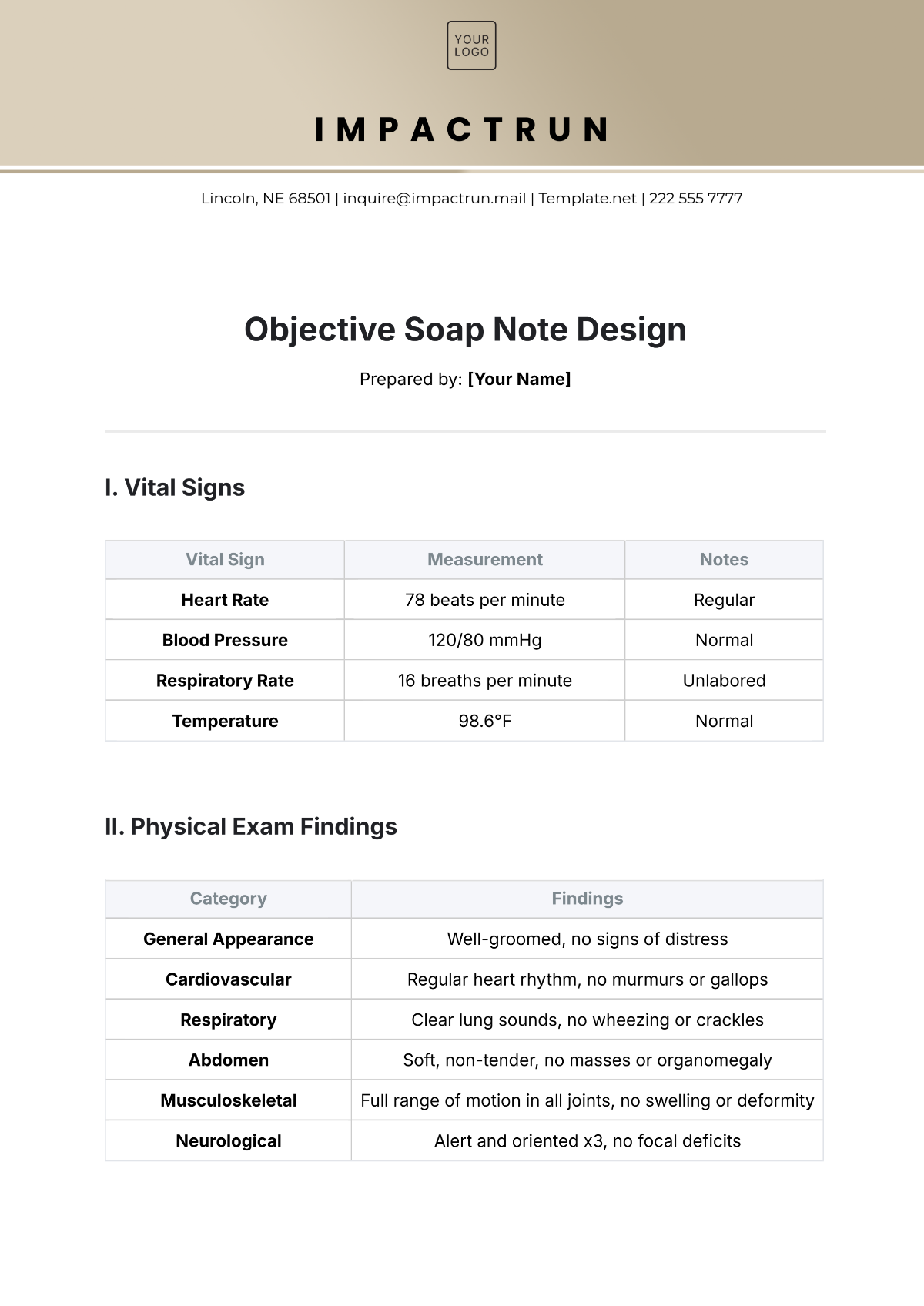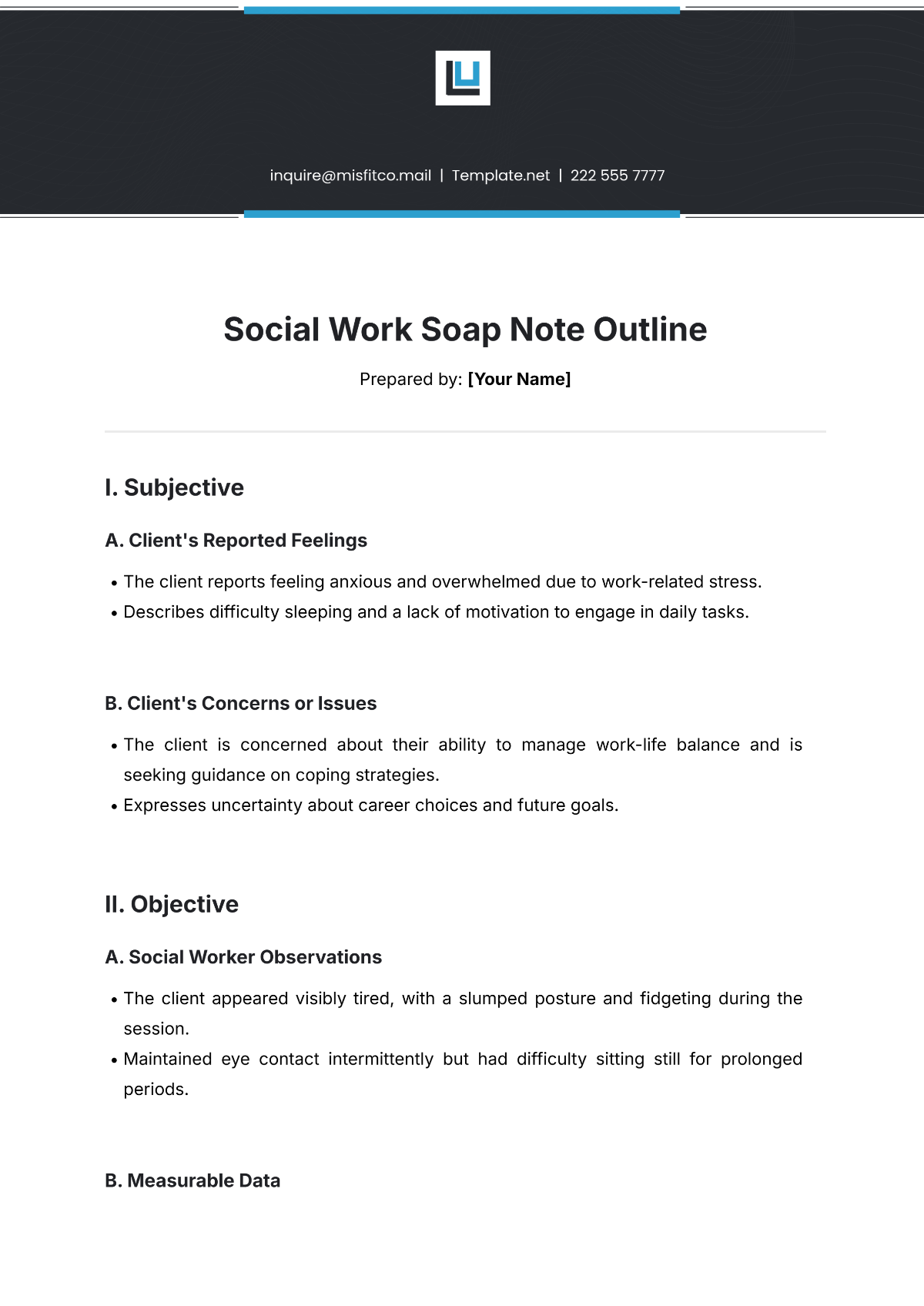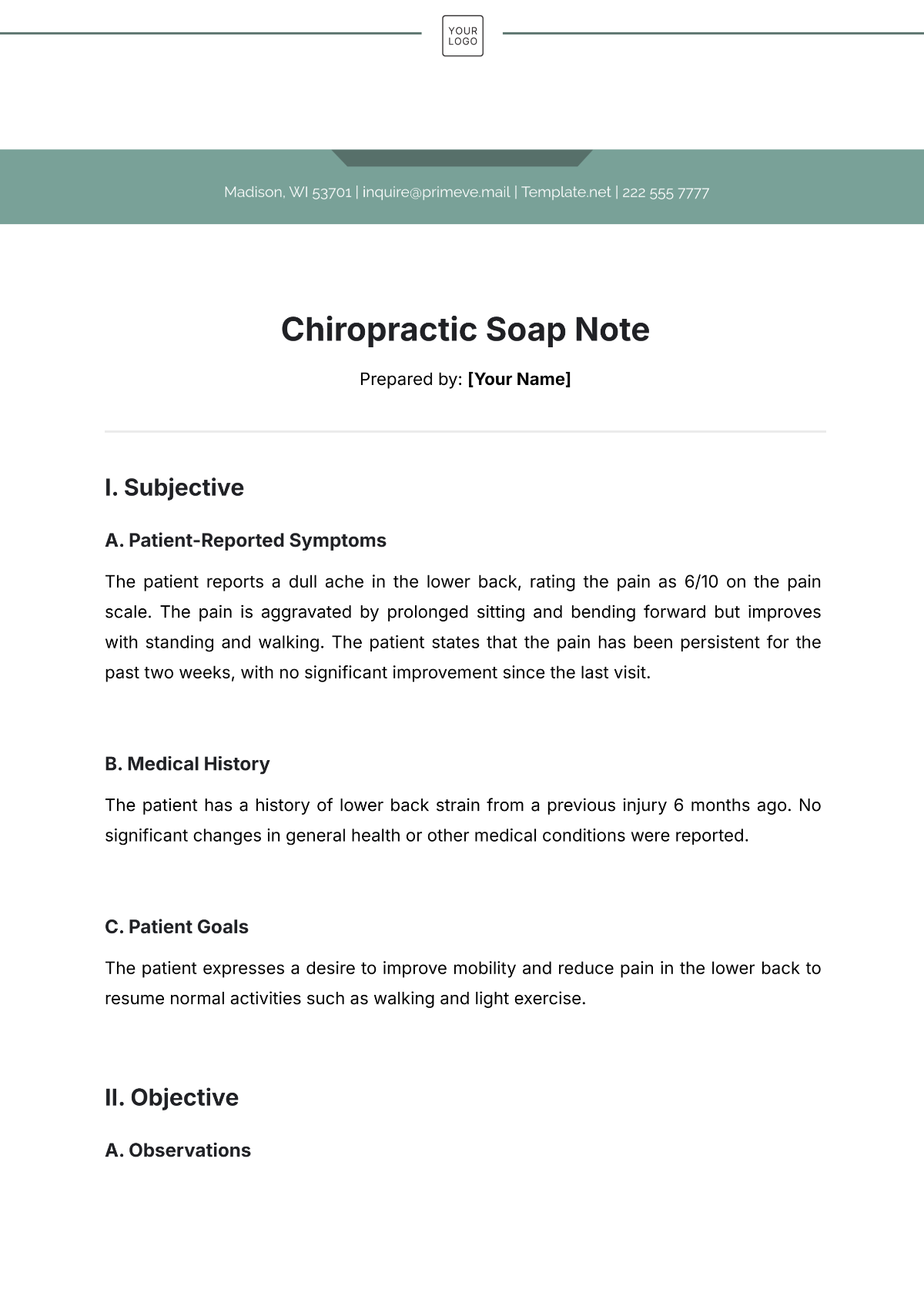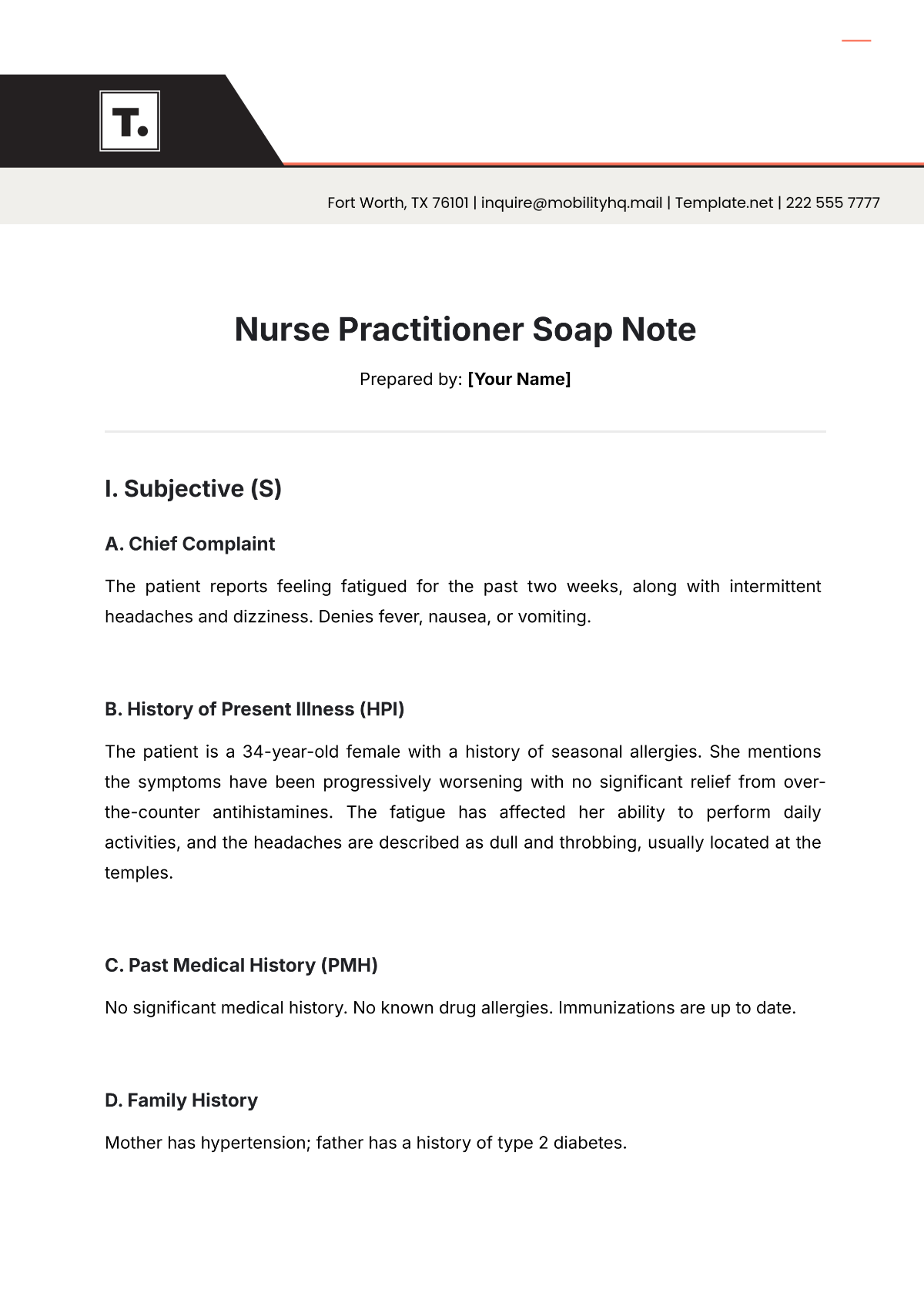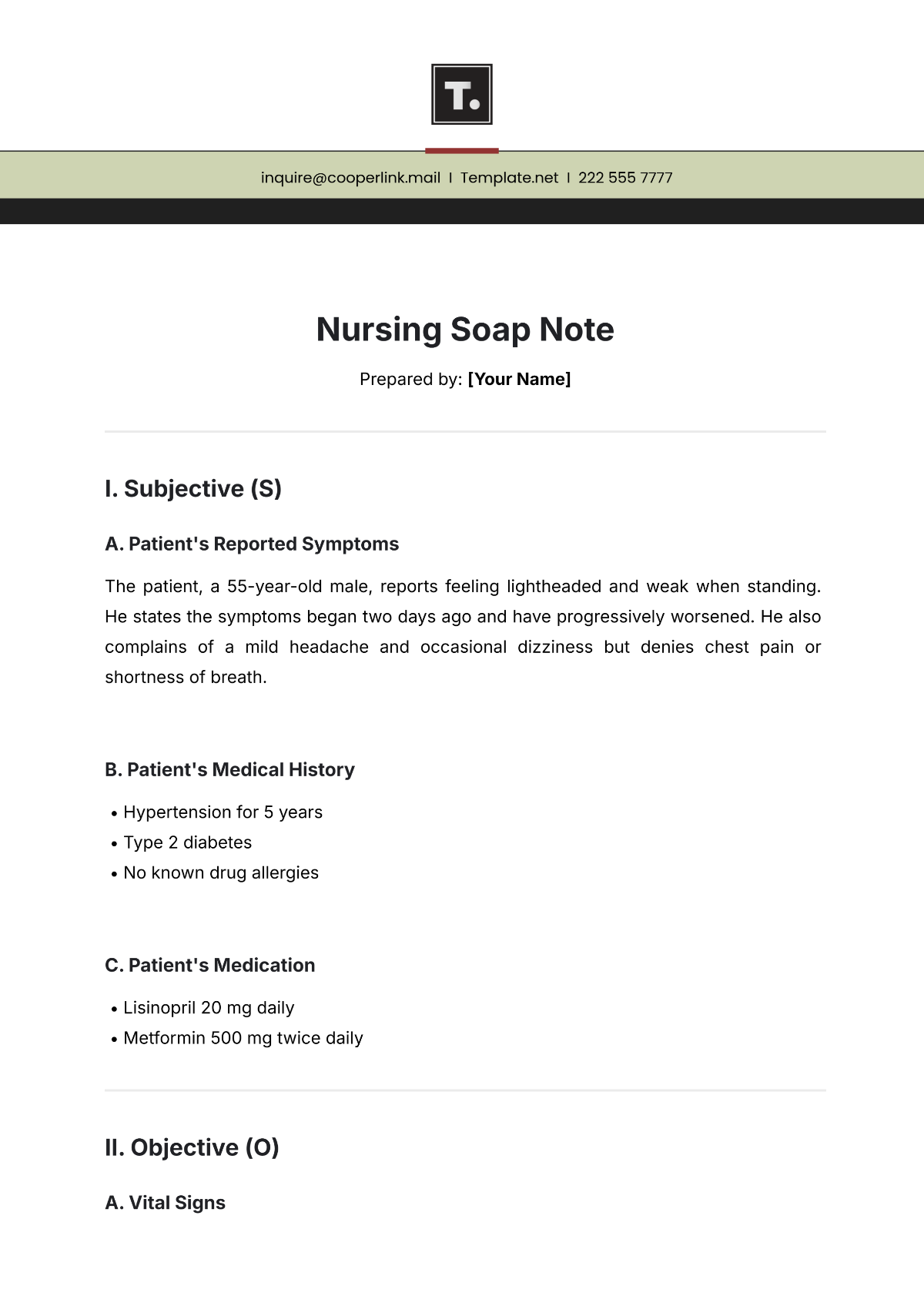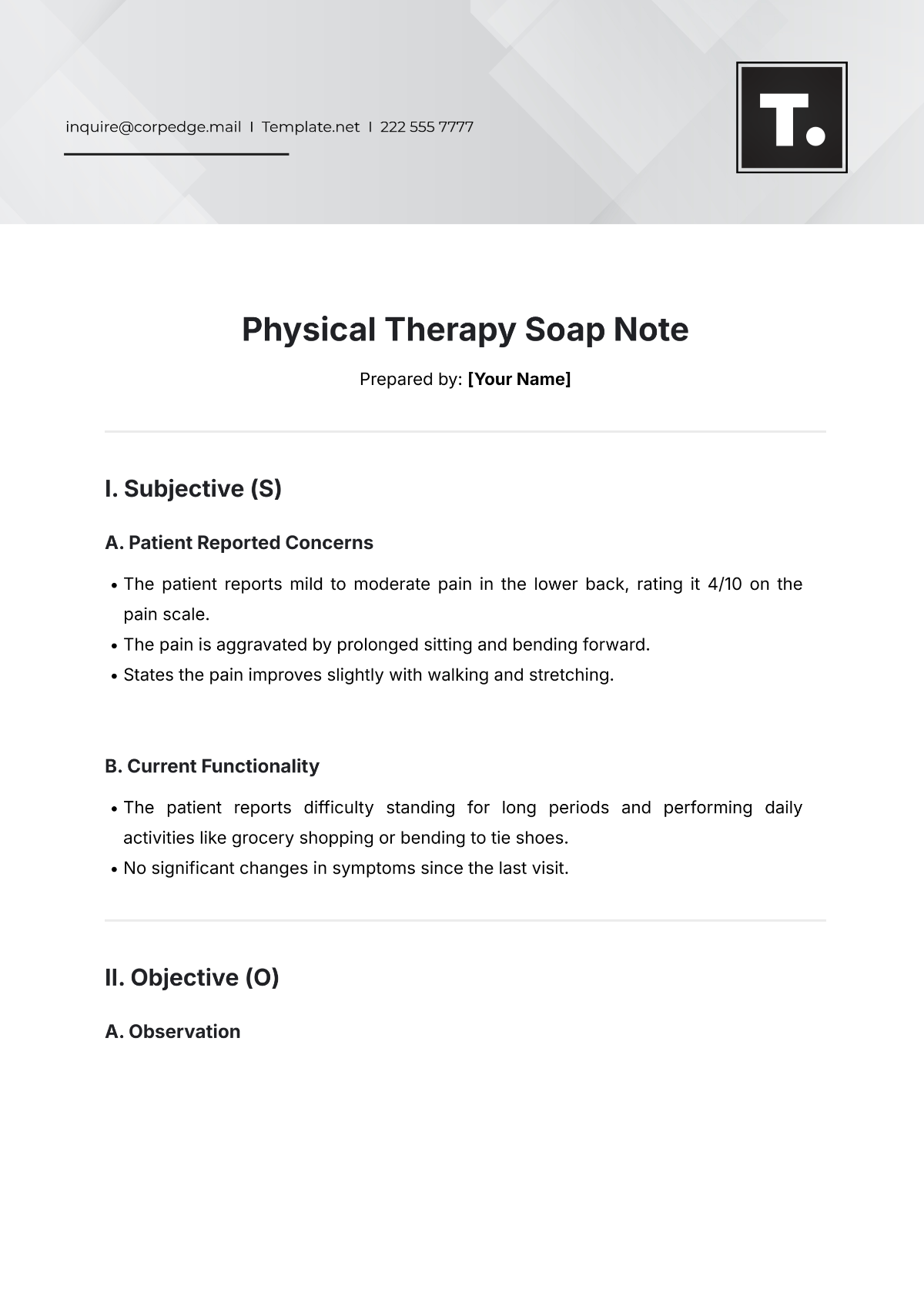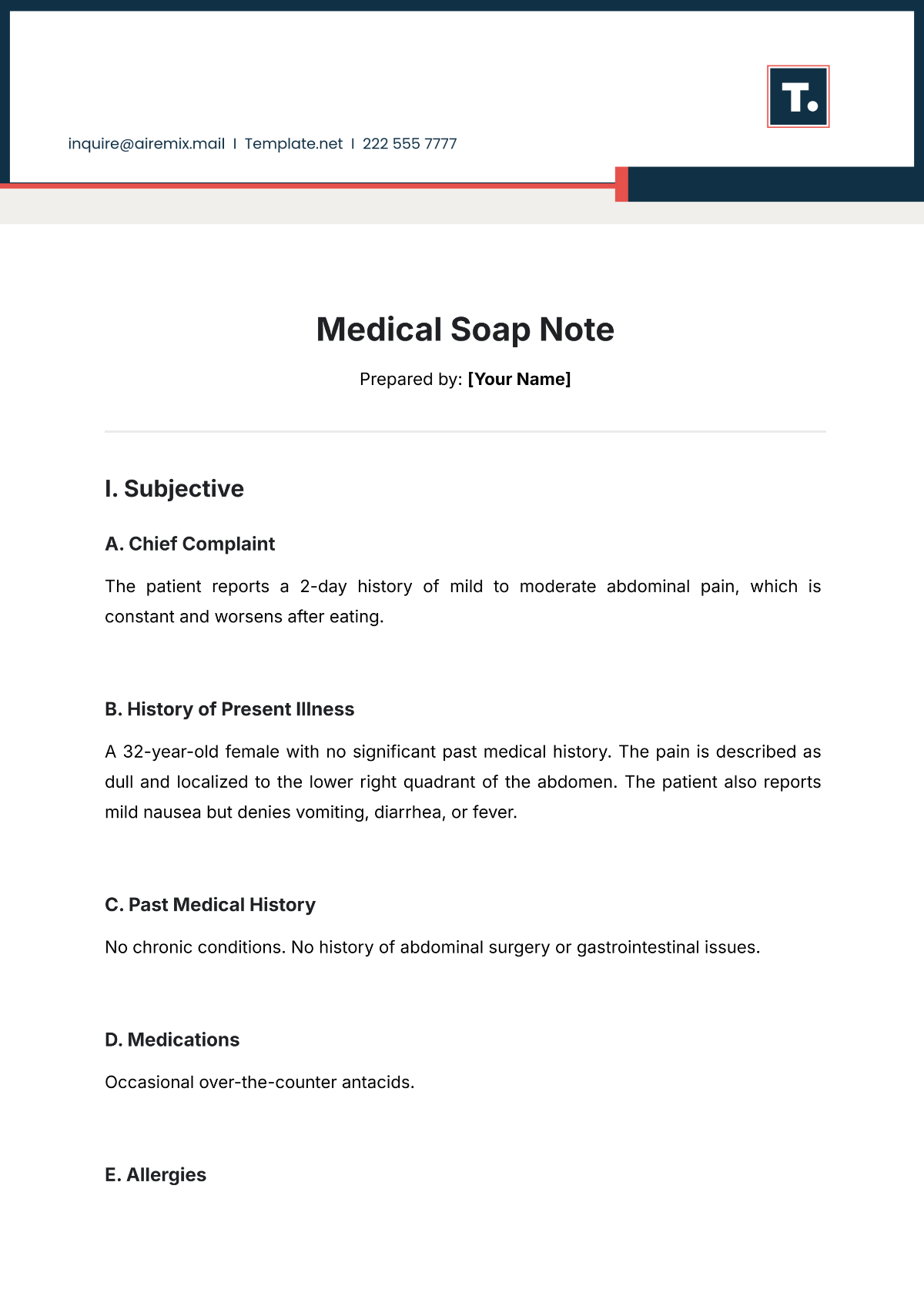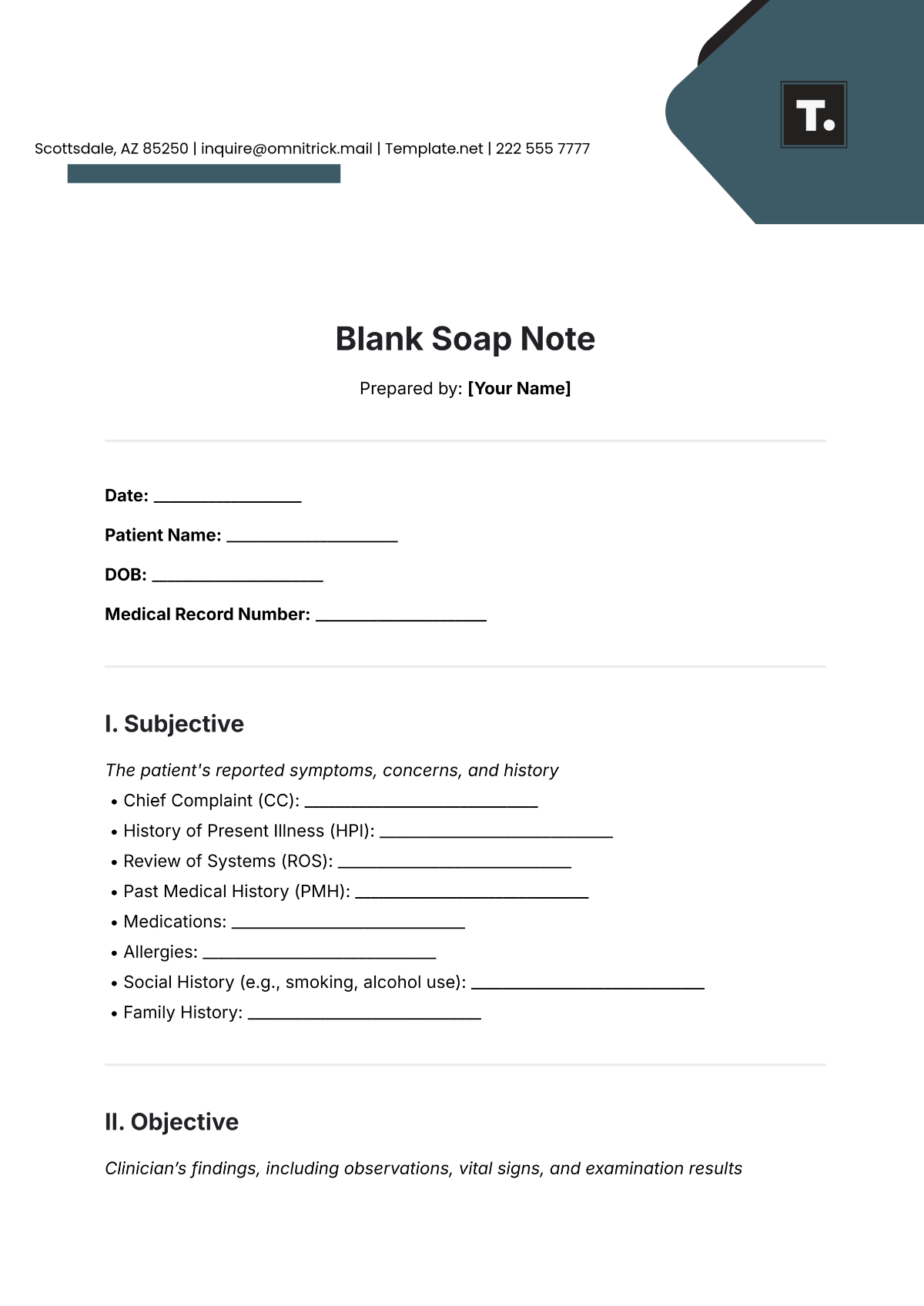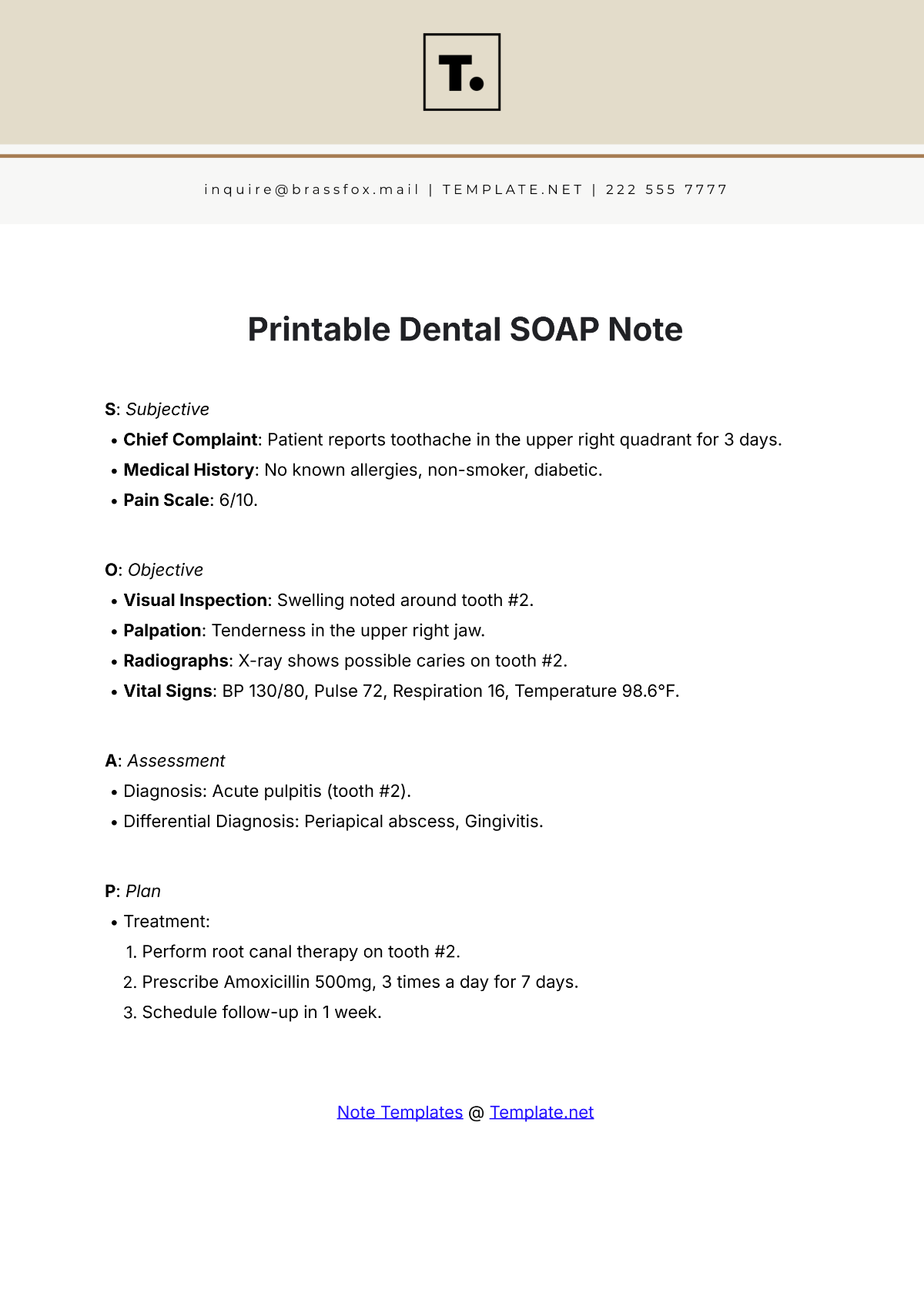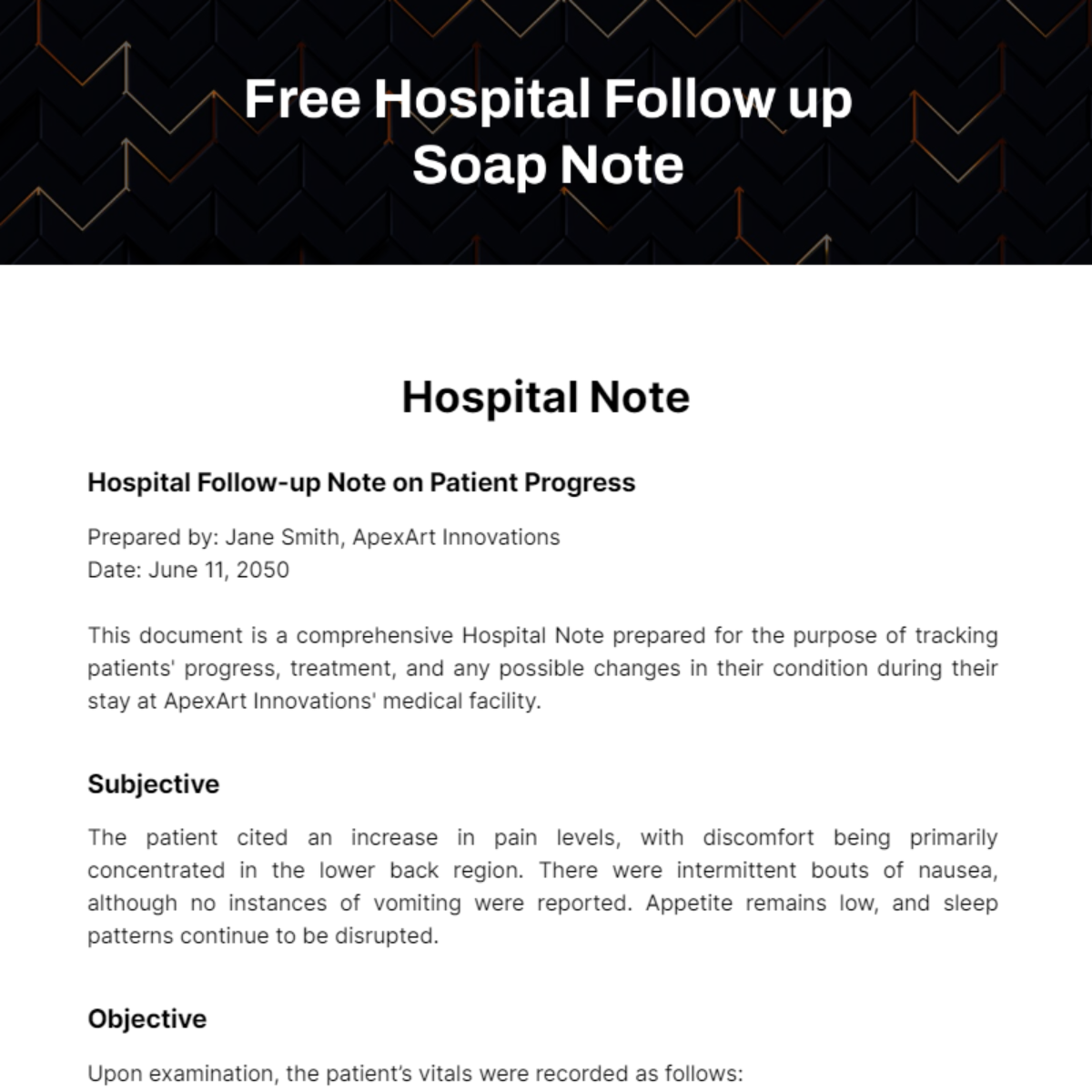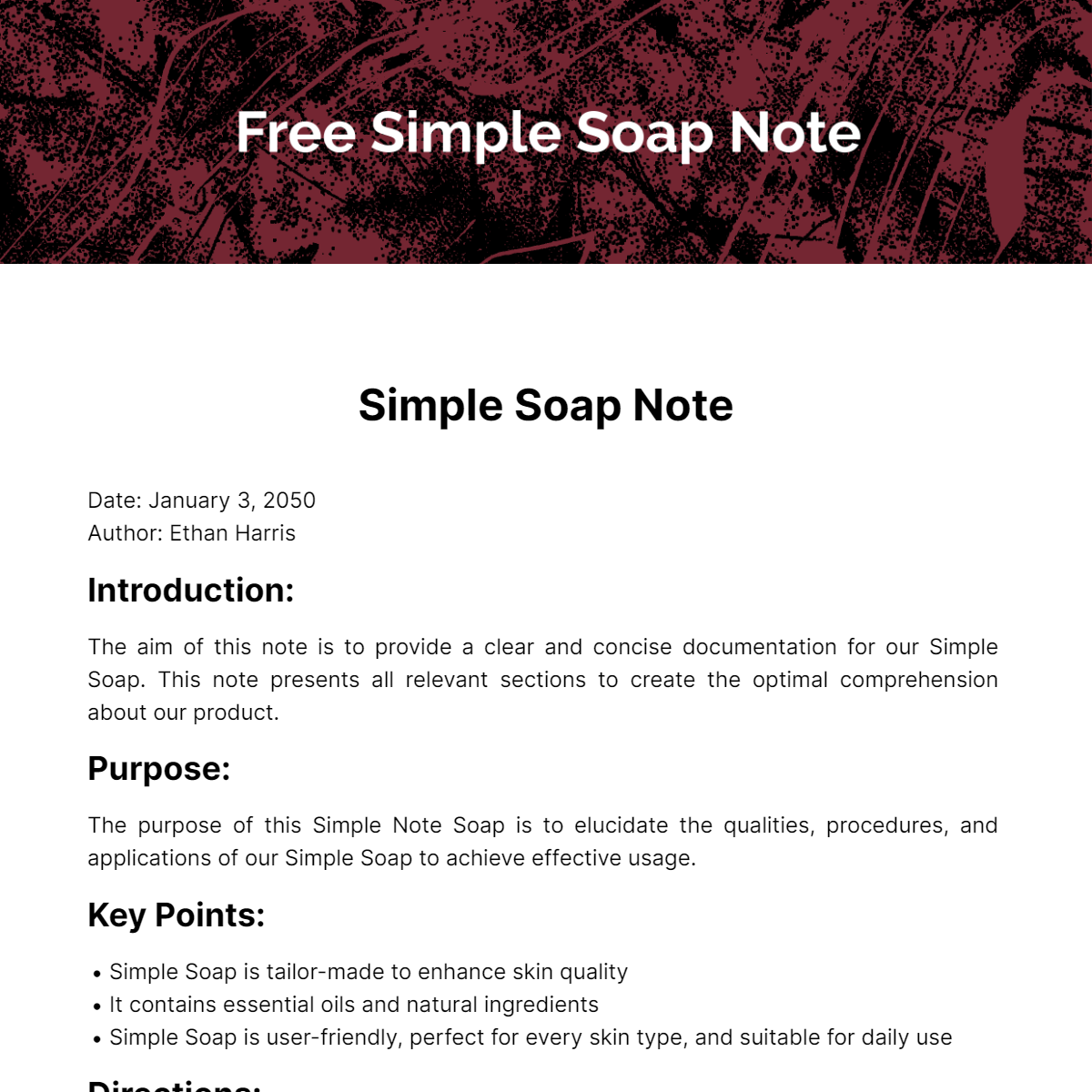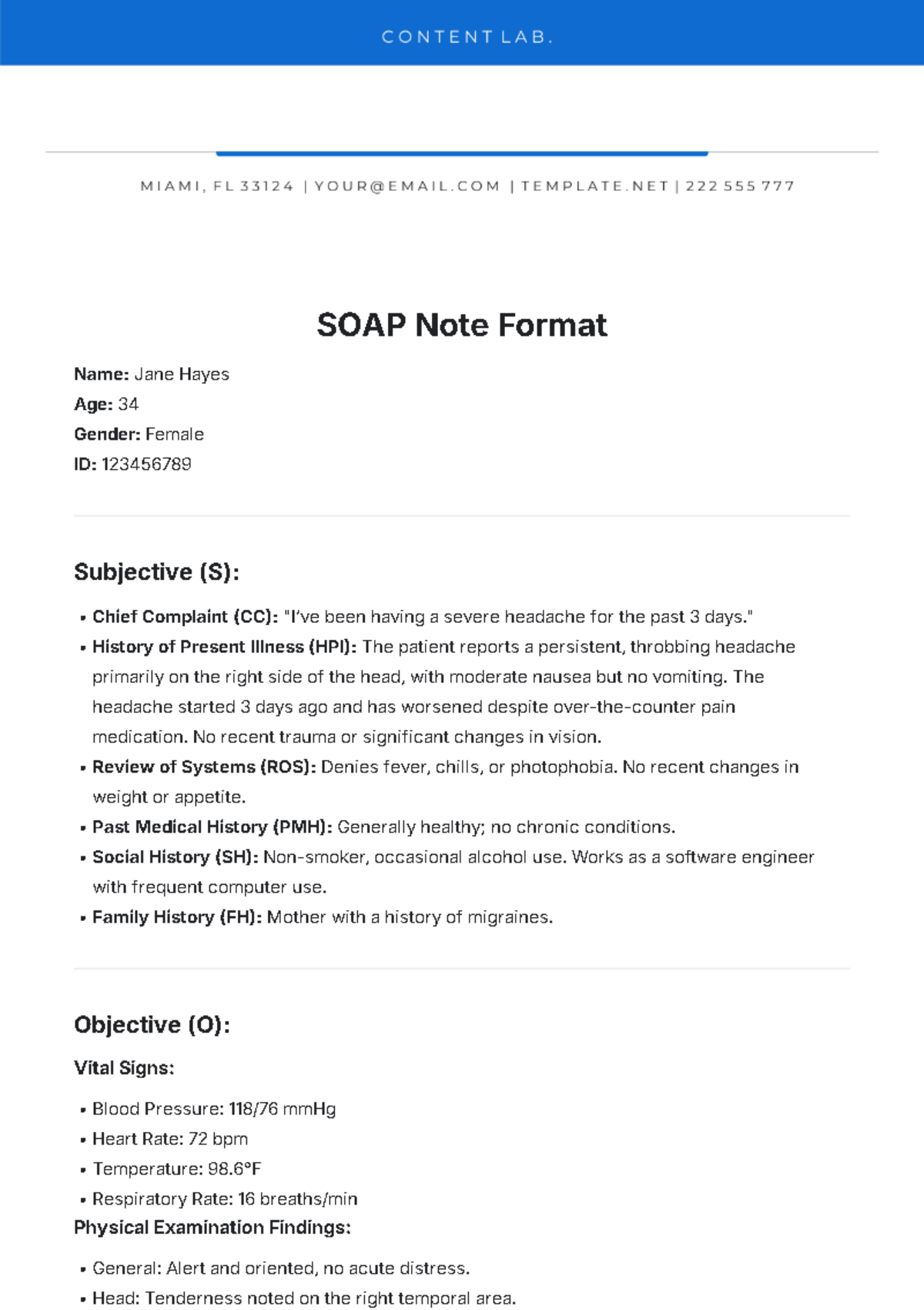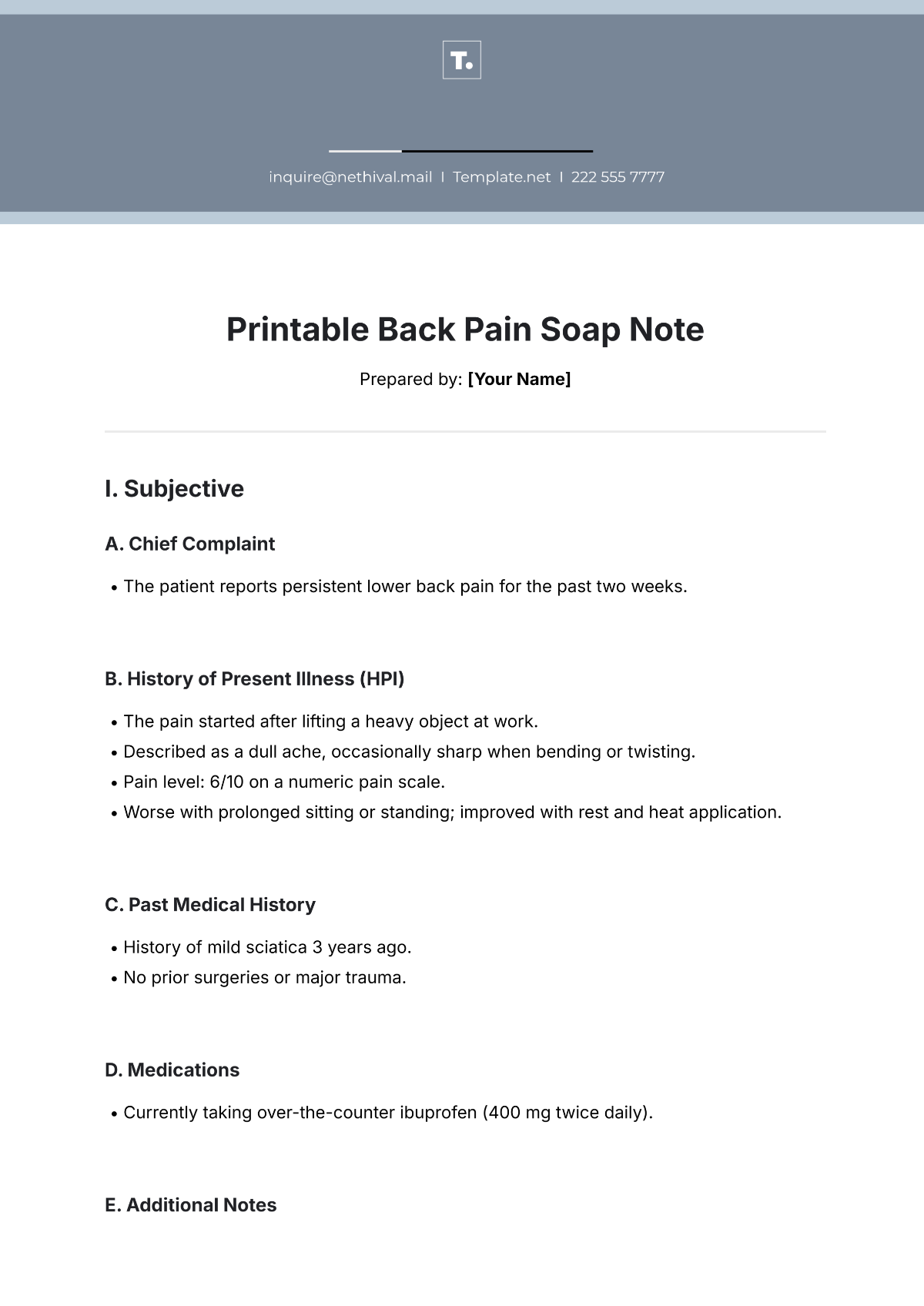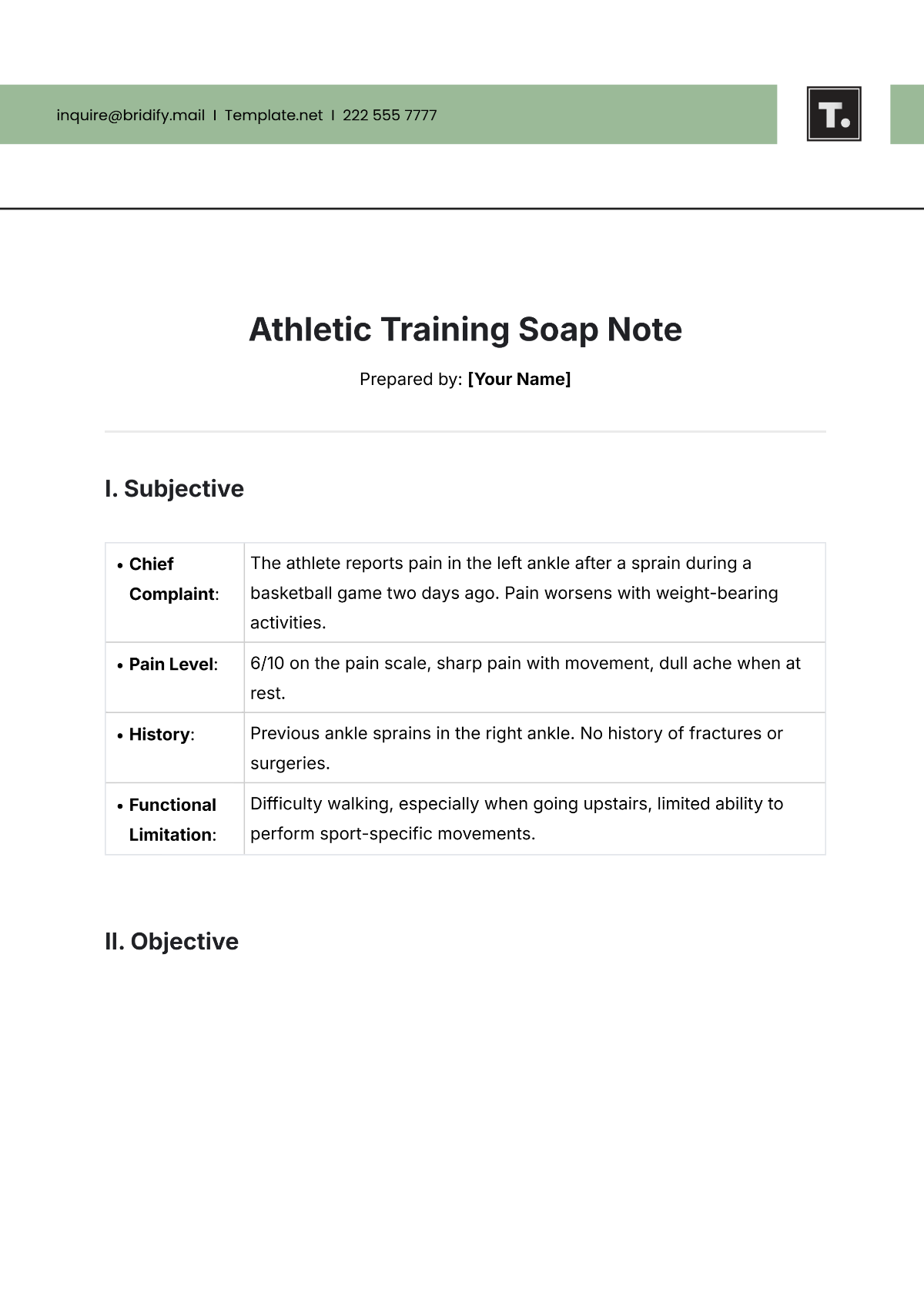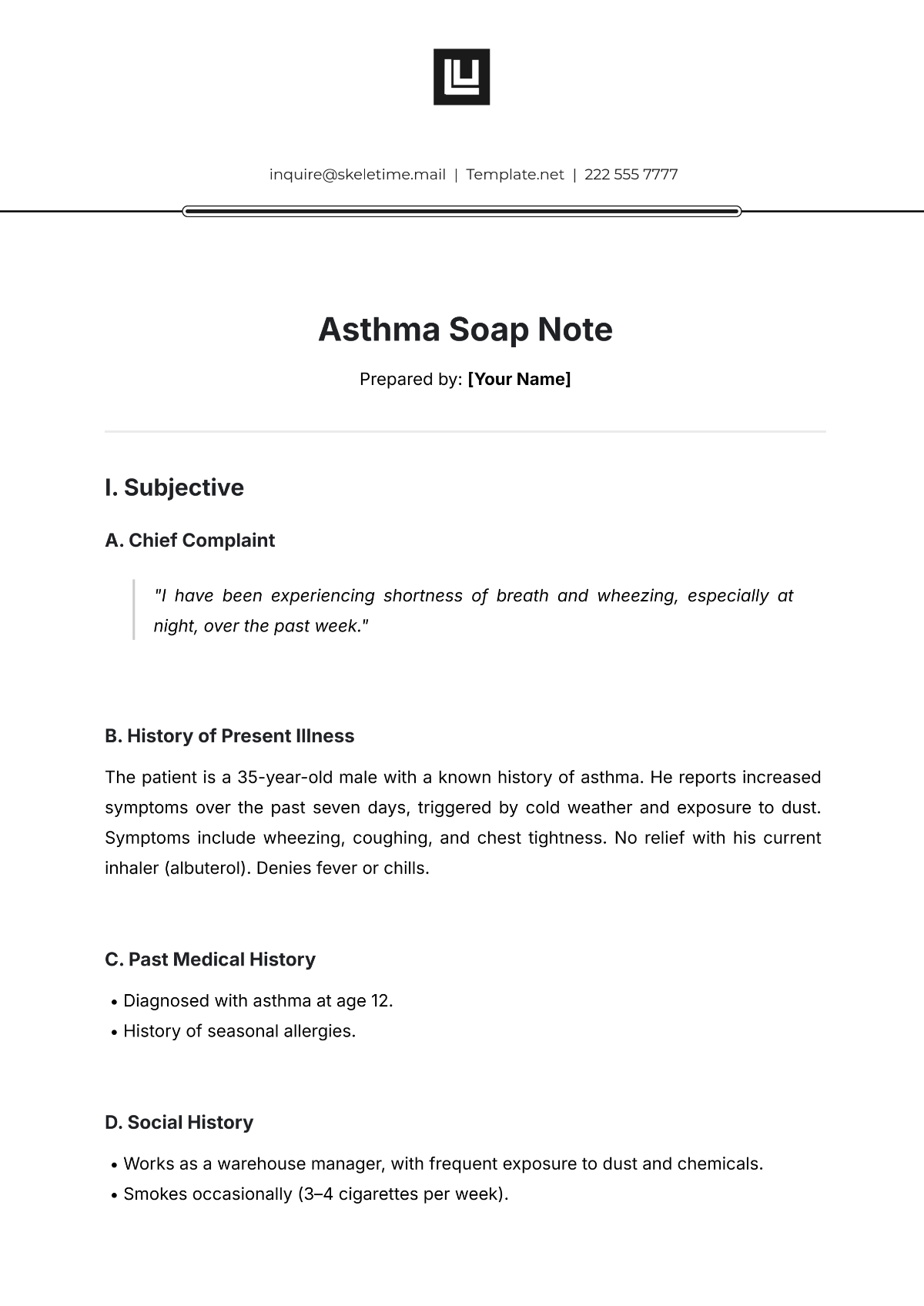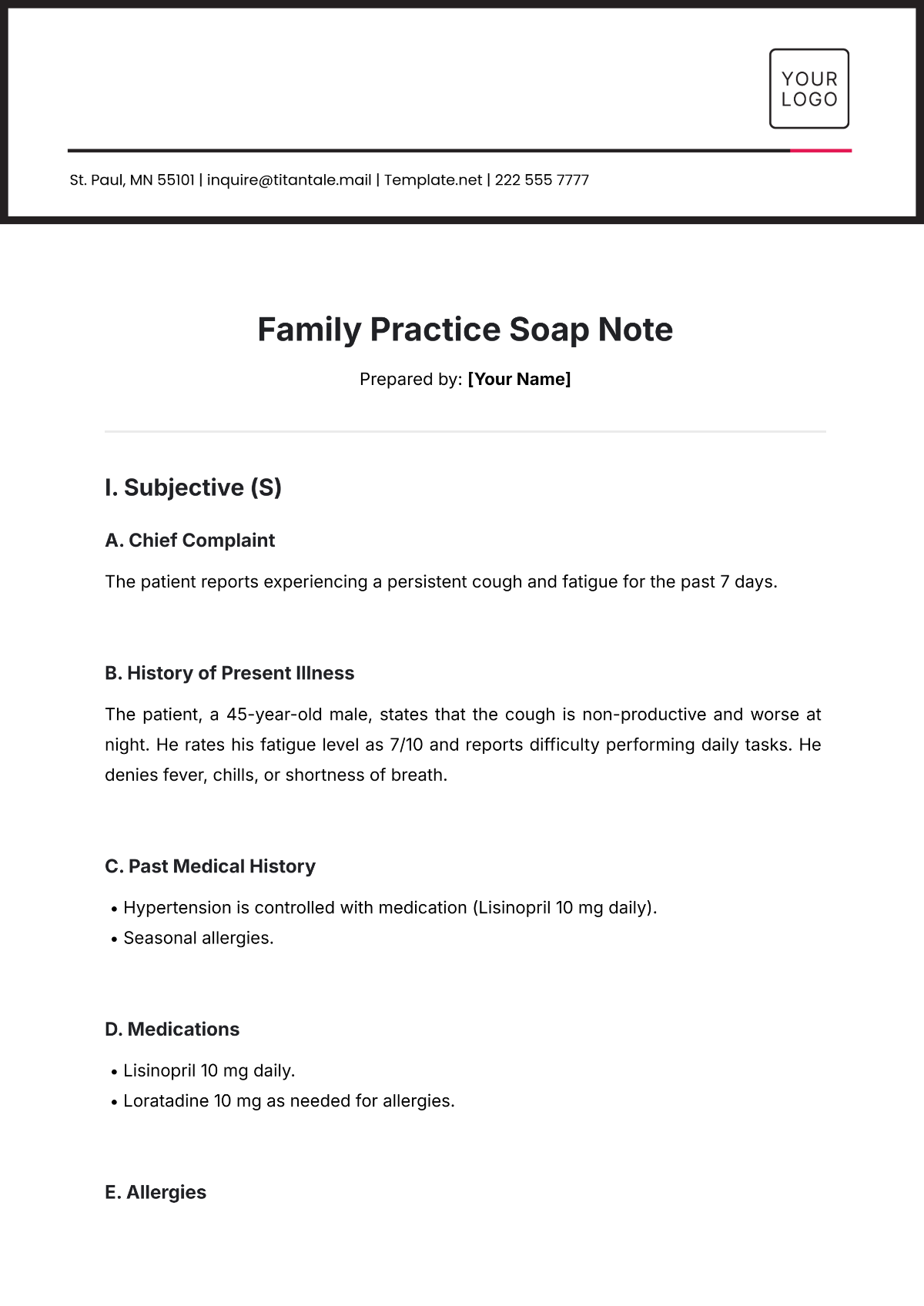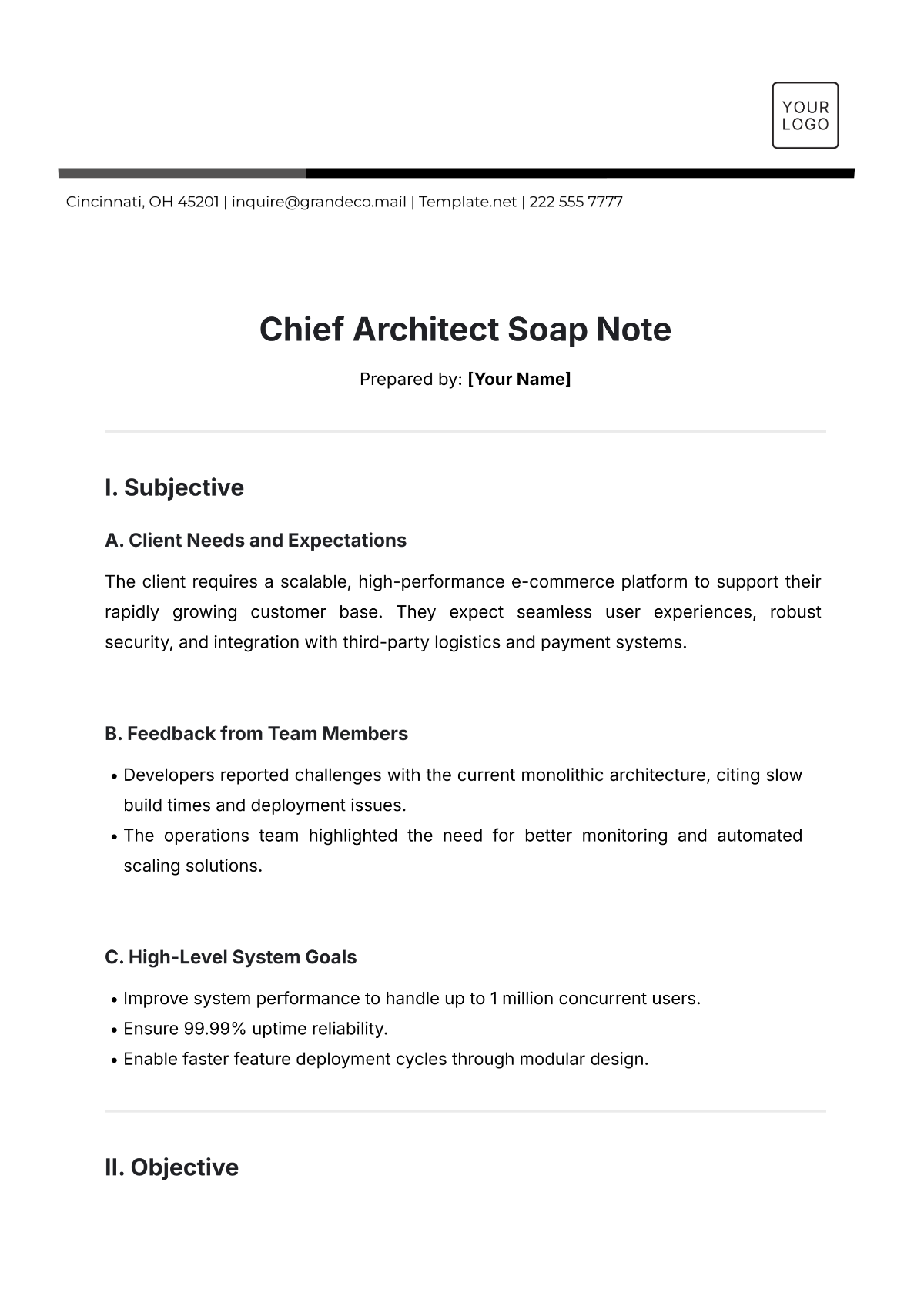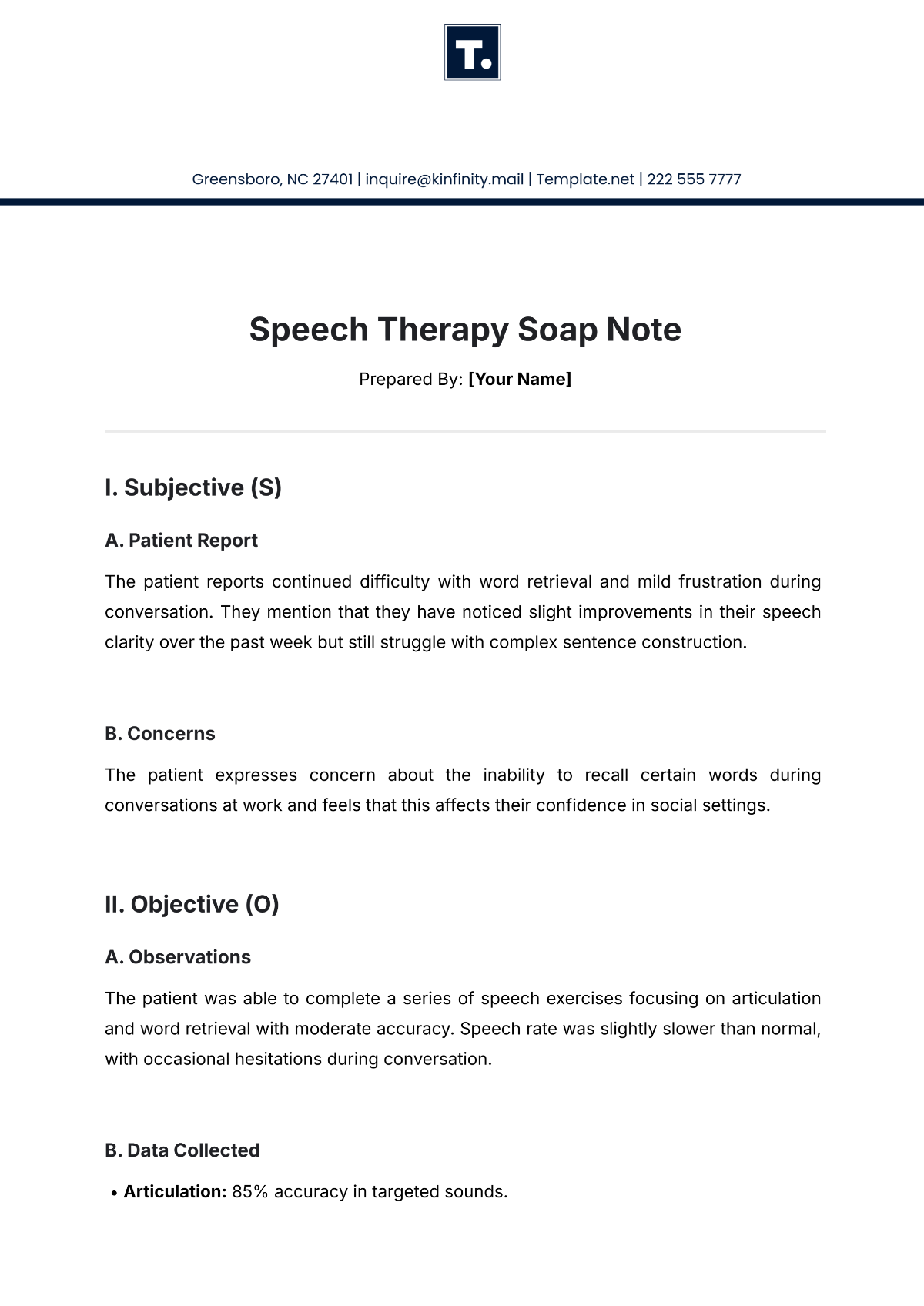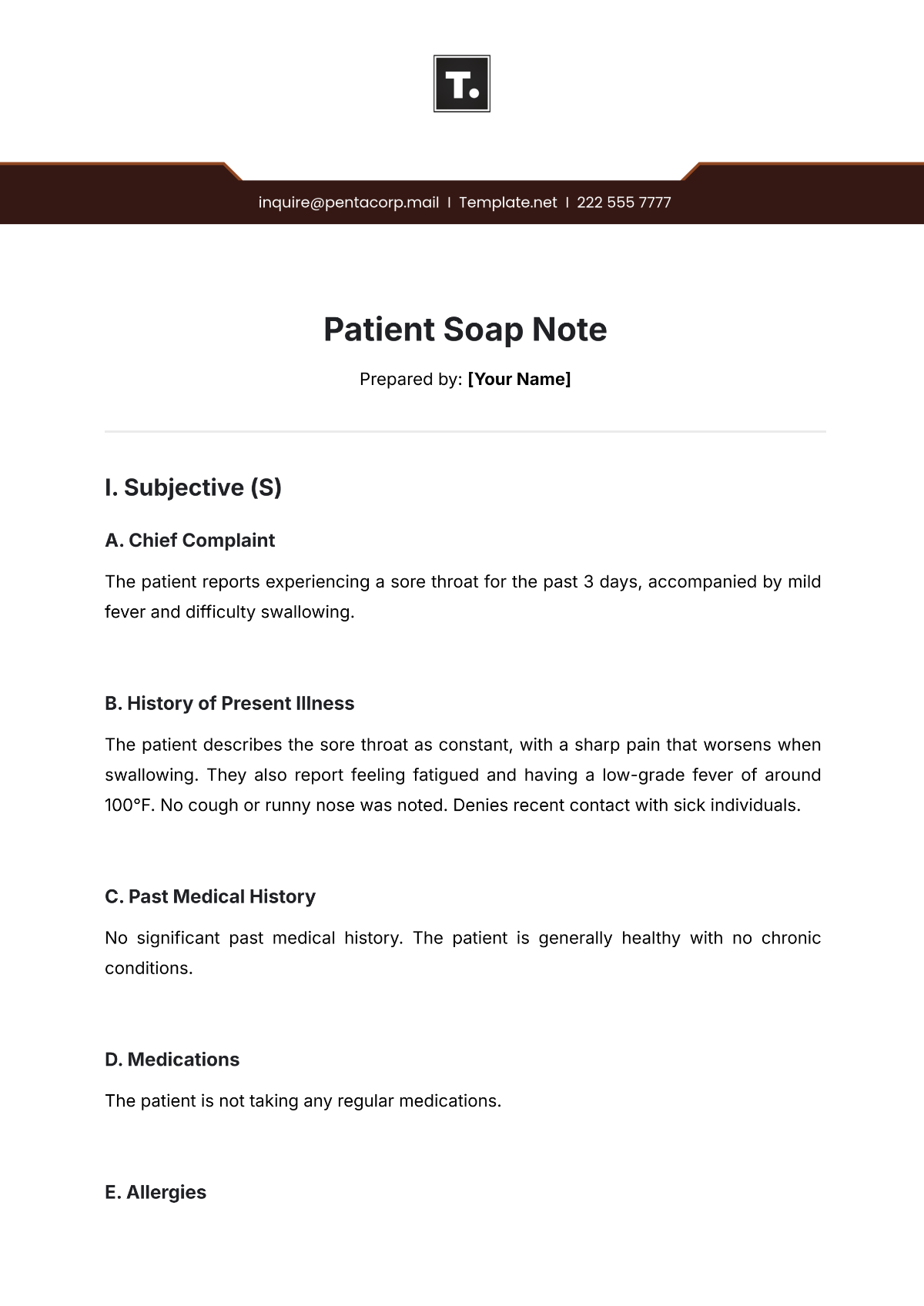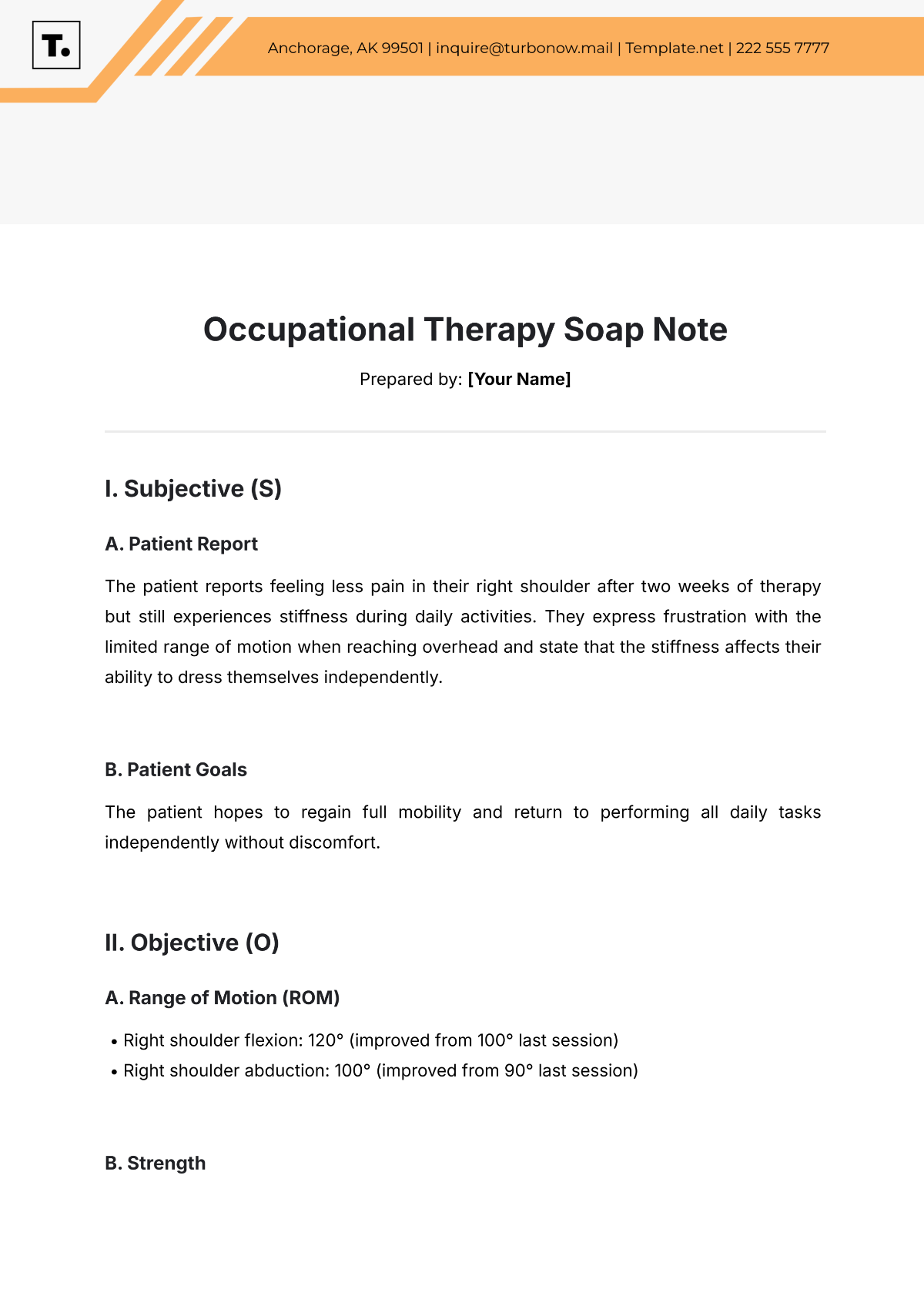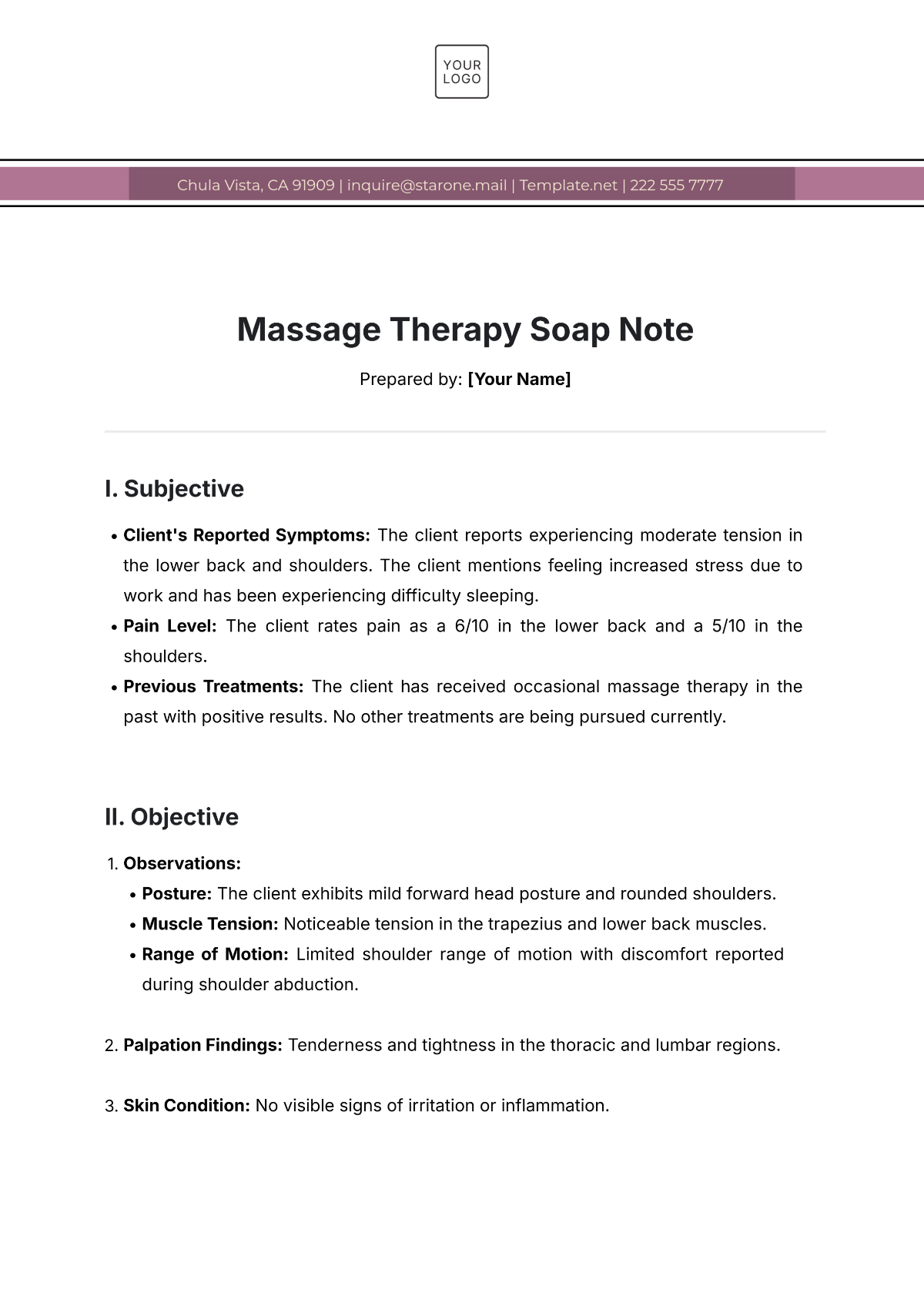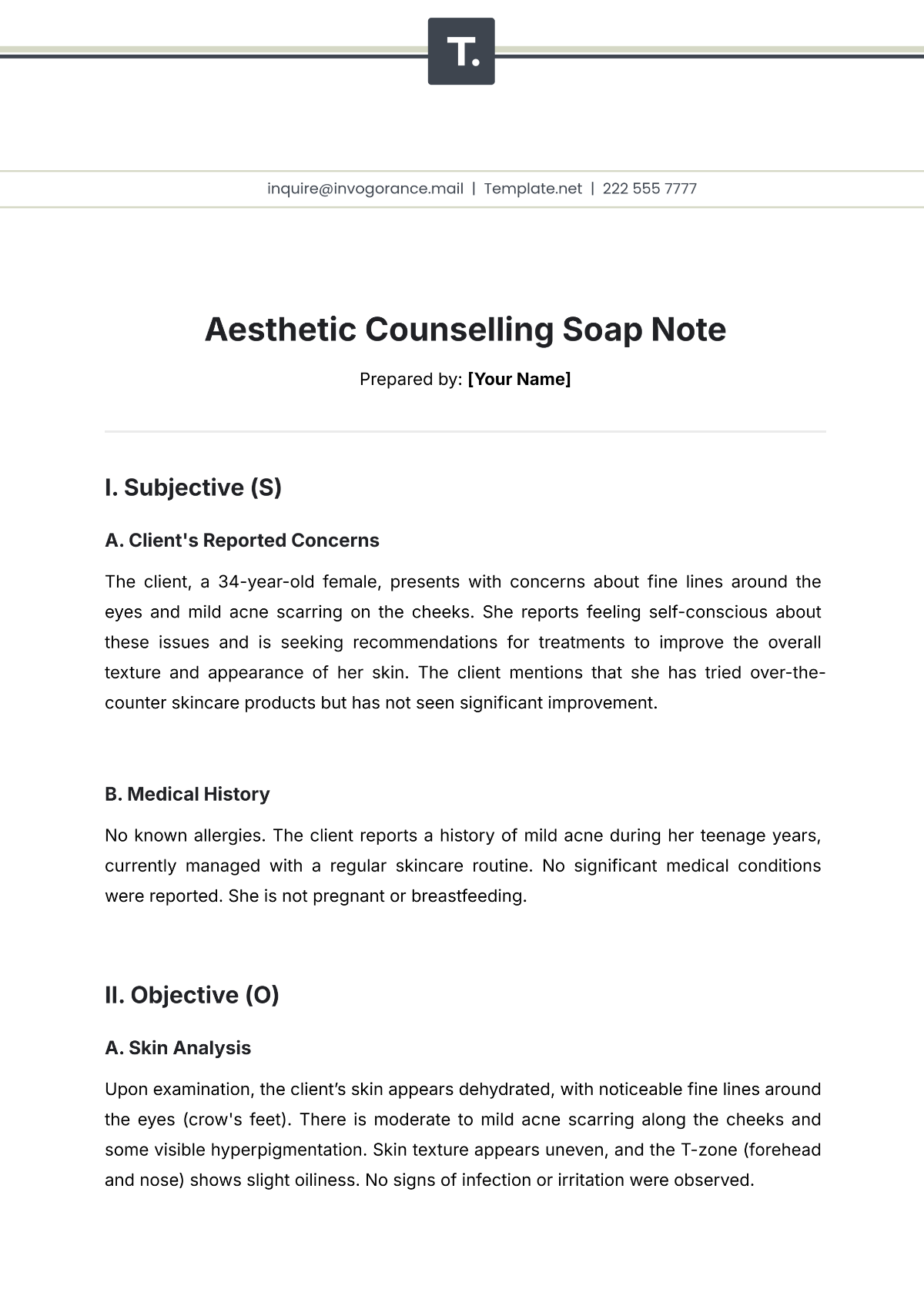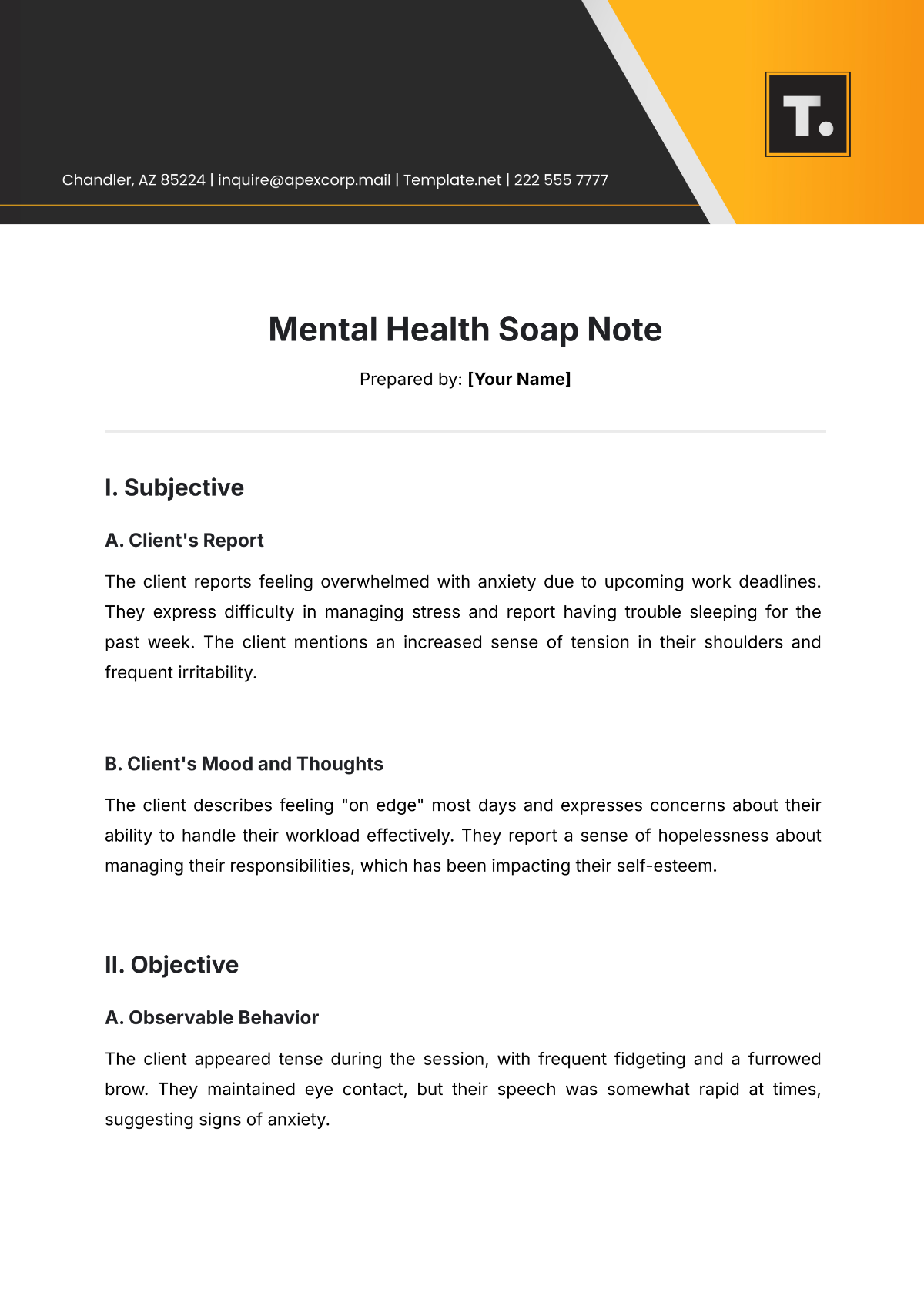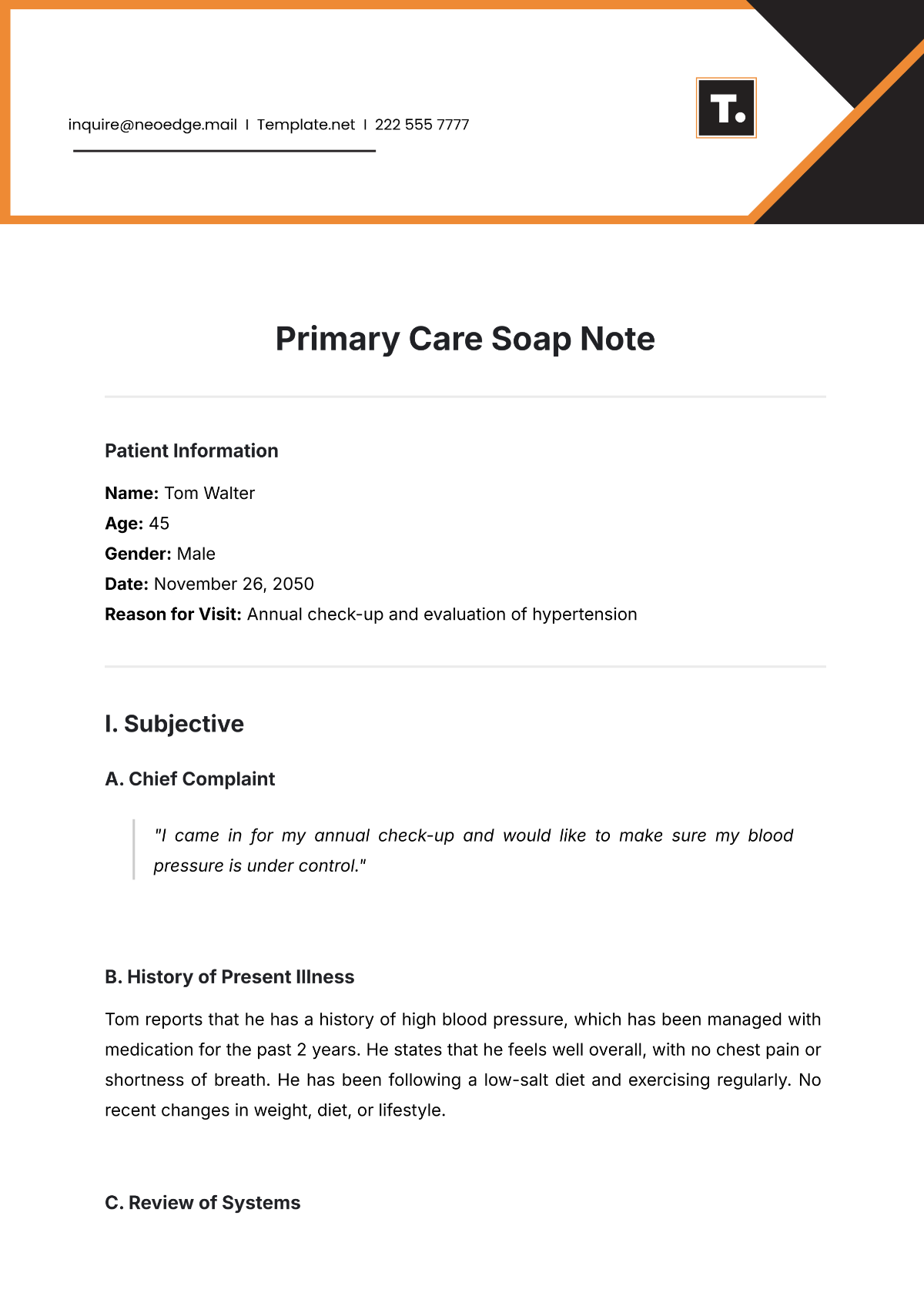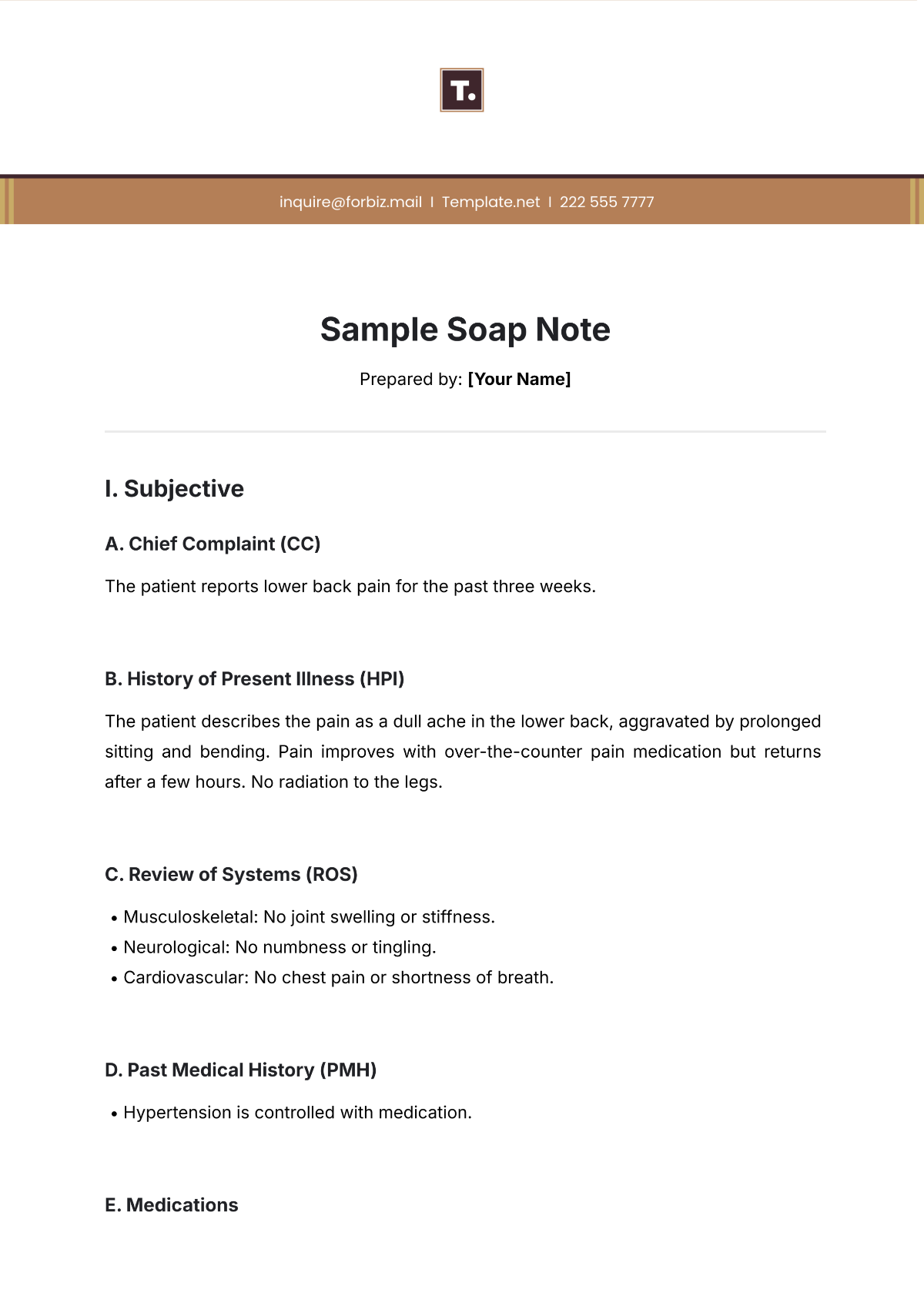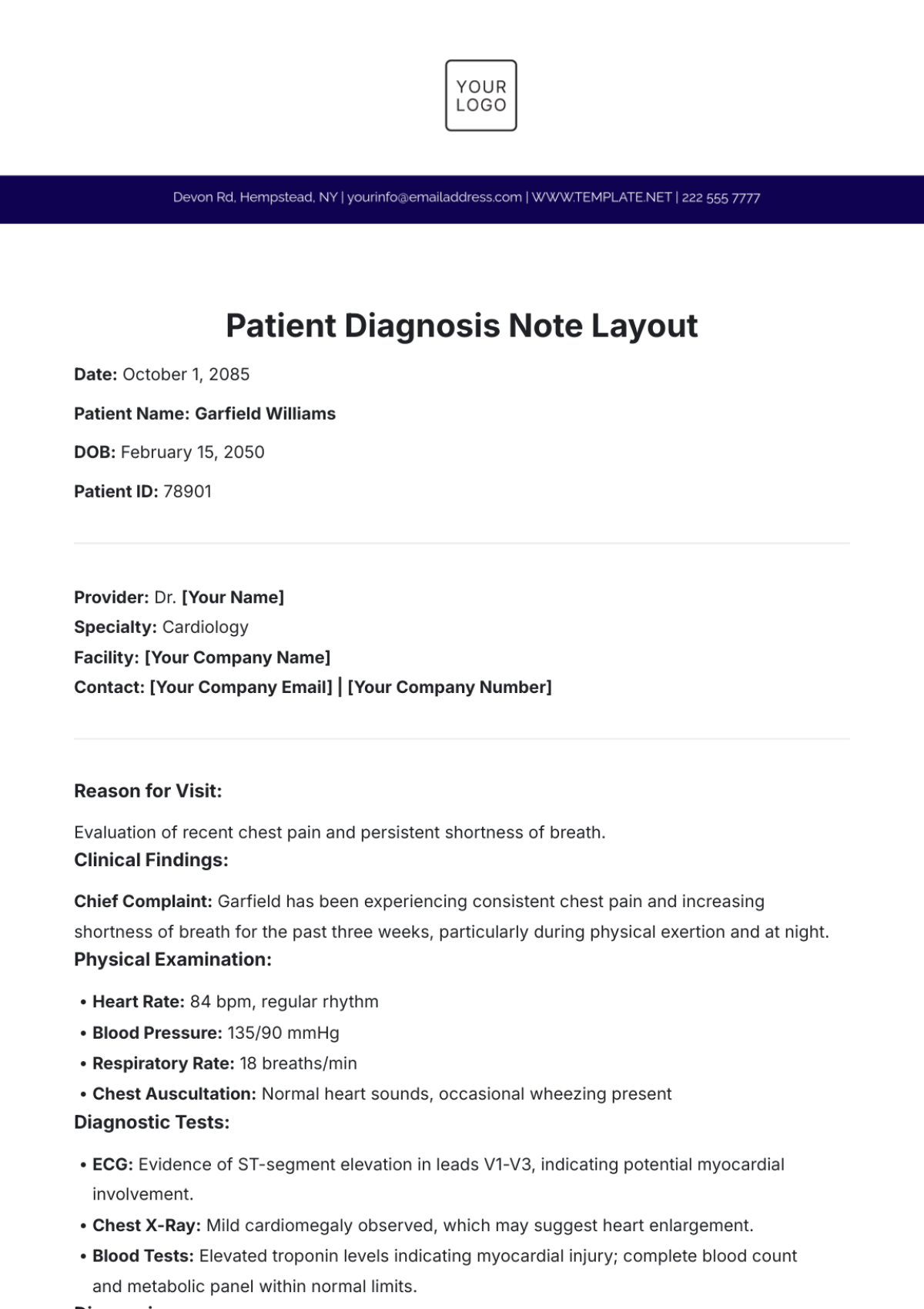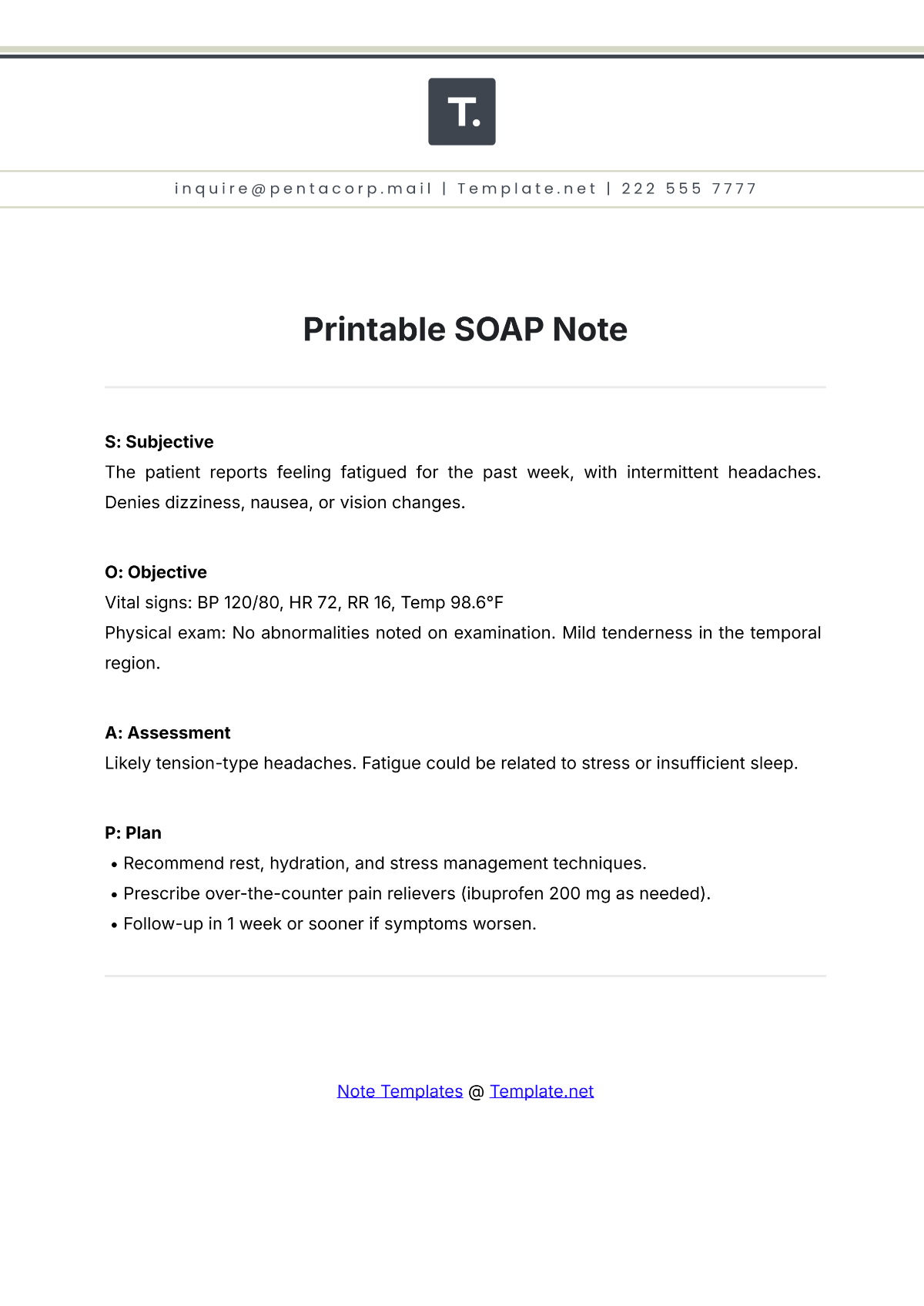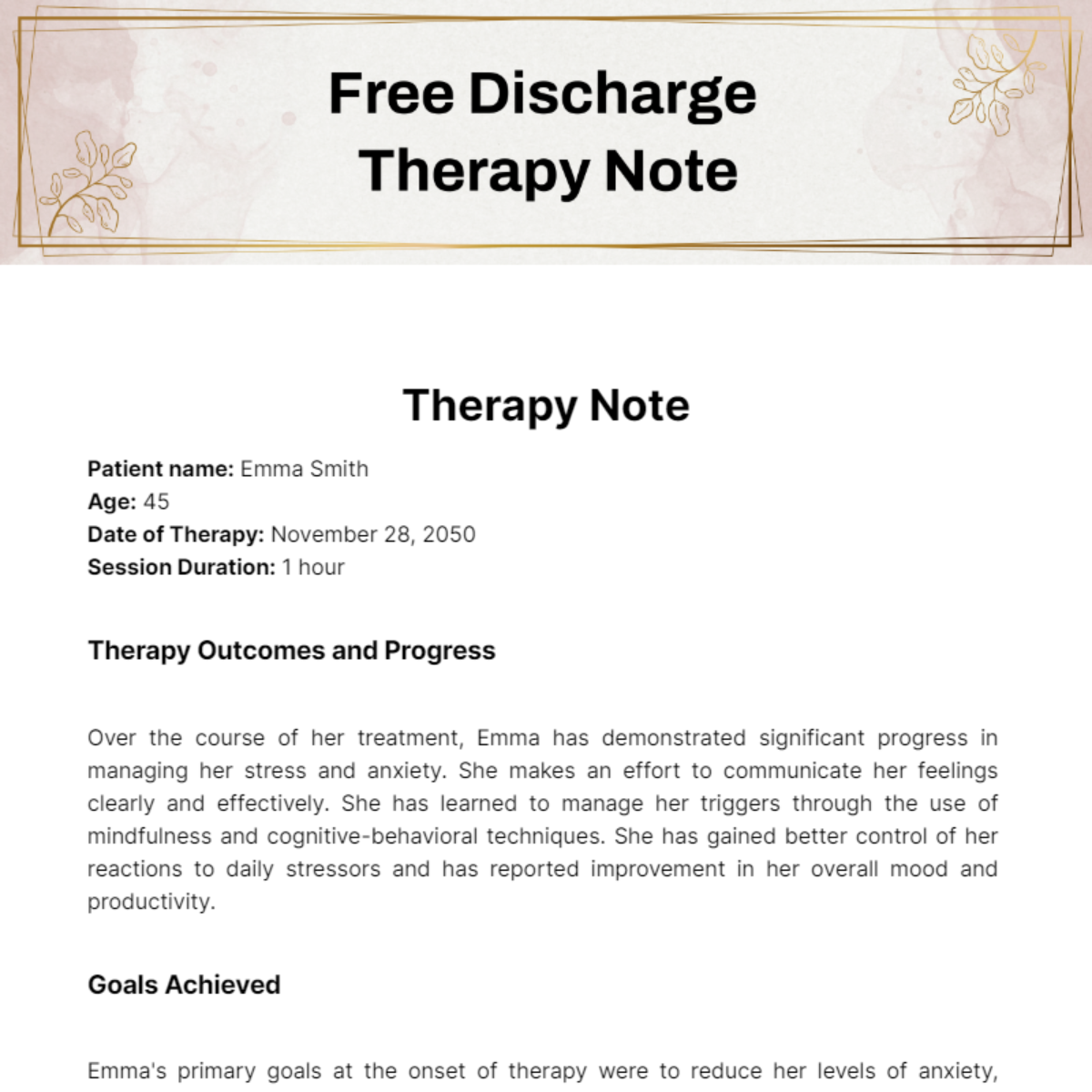Asthma Soap Note
Prepared by: [Your Name]
I. Subjective
A. Chief Complaint
"I have been experiencing shortness of breath and wheezing, especially at night, over the past week."
B. History of Present Illness
The patient is a 35-year-old male with a known history of asthma. He reports increased symptoms over the past seven days, triggered by cold weather and exposure to dust. Symptoms include wheezing, coughing, and chest tightness. No relief with his current inhaler (albuterol). Denies fever or chills.
C. Past Medical History
Diagnosed with asthma at age 12.
History of seasonal allergies.
D. Social History
Works as a warehouse manager, with frequent exposure to dust and chemicals.
Smokes occasionally (3–4 cigarettes per week).
E. Family History
The mother has a history of asthma and seasonal allergies.
F. Review of Systems
Respiratory: Positive for shortness of breath and wheezing.
Cardiovascular: Negative for chest pain or palpitations.
Other systems: Negative.
II. Objective
A. Vital Signs
Temperature: 98.6°F
Heart Rate: 92 bpm
Respiratory Rate: 22 breaths/min
Blood Pressure: 124/78 mmHg
SpO2: 94% on room air
B. Physical Exam
General: Alert and oriented, appears mildly distressed.
Respiratory: Bilateral wheezing on auscultation, no crackles or rhonchi. Prolonged expiratory phase.
Cardiac: Regular rate and rhythm, no murmurs.
ENT: Nasal congestion, no sinus tenderness.
Skin: No cyanosis or rash.
C. Diagnostic Tests
Peak Flow: 250 L/min (baseline: 400 L/min).
III. Assessment
A. Diagnosis
Asthma exacerbations are likely triggered by environmental allergens and cold weather.
History of intermittent non-compliance with maintenance inhaler use.
B. Severity
Moderate exacerbation based on subjective symptoms, physical findings, and peak flow measurement.
IV. Plan
A. Medications
Initiate prednisone 40 mg orally daily for 5 days.
Continue albuterol inhaler as needed every 4–6 hours for shortness of breath or wheezing.
Reinforce the use of a maintenance inhaler (fluticasone 100 mcg, 2 puffs twice daily).
B. Lifestyle Recommendations
Avoid exposure to known triggers, including dust and cold environments.
Reduce smoking; offer referral to a smoking cessation program.
C. Follow-Up
Schedule a follow-up visit in one week to reassess symptoms and peak flow.
Consider spirometry at the next visit if symptoms persist.
D. Patient Education
Reviewed asthma action plan and the importance of adherence to maintenance therapy.
Educated on recognizing early warning signs of worsening asthma and when to seek emergency care.
